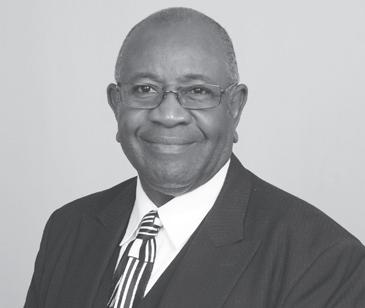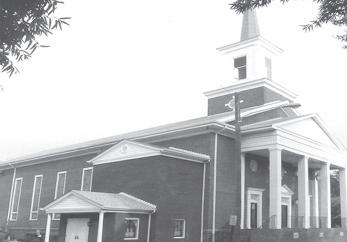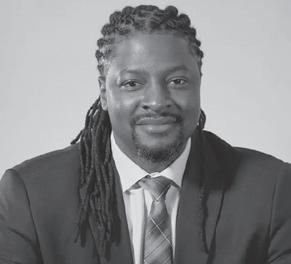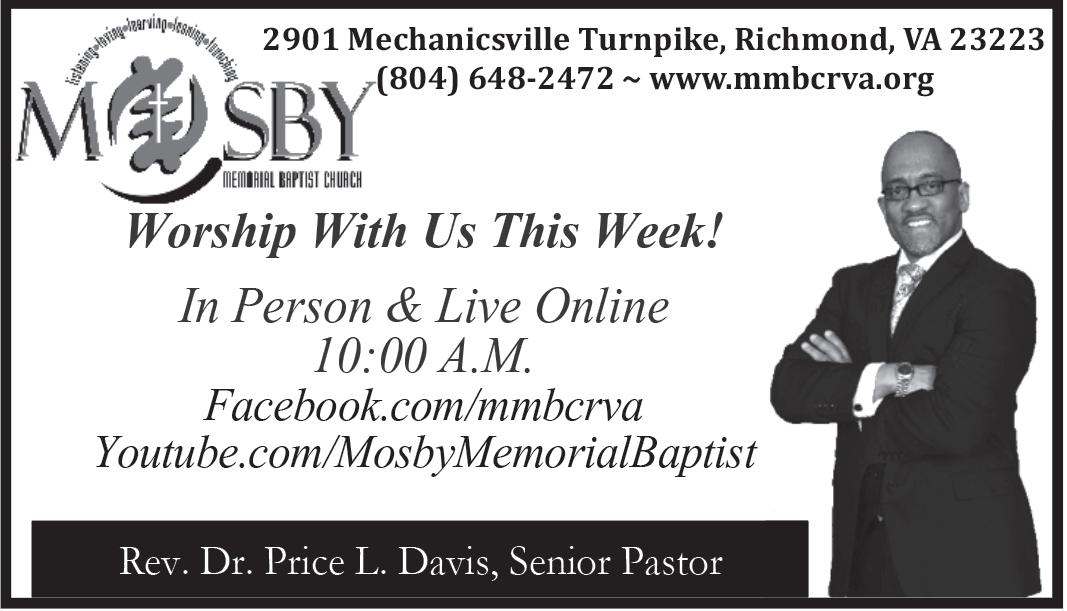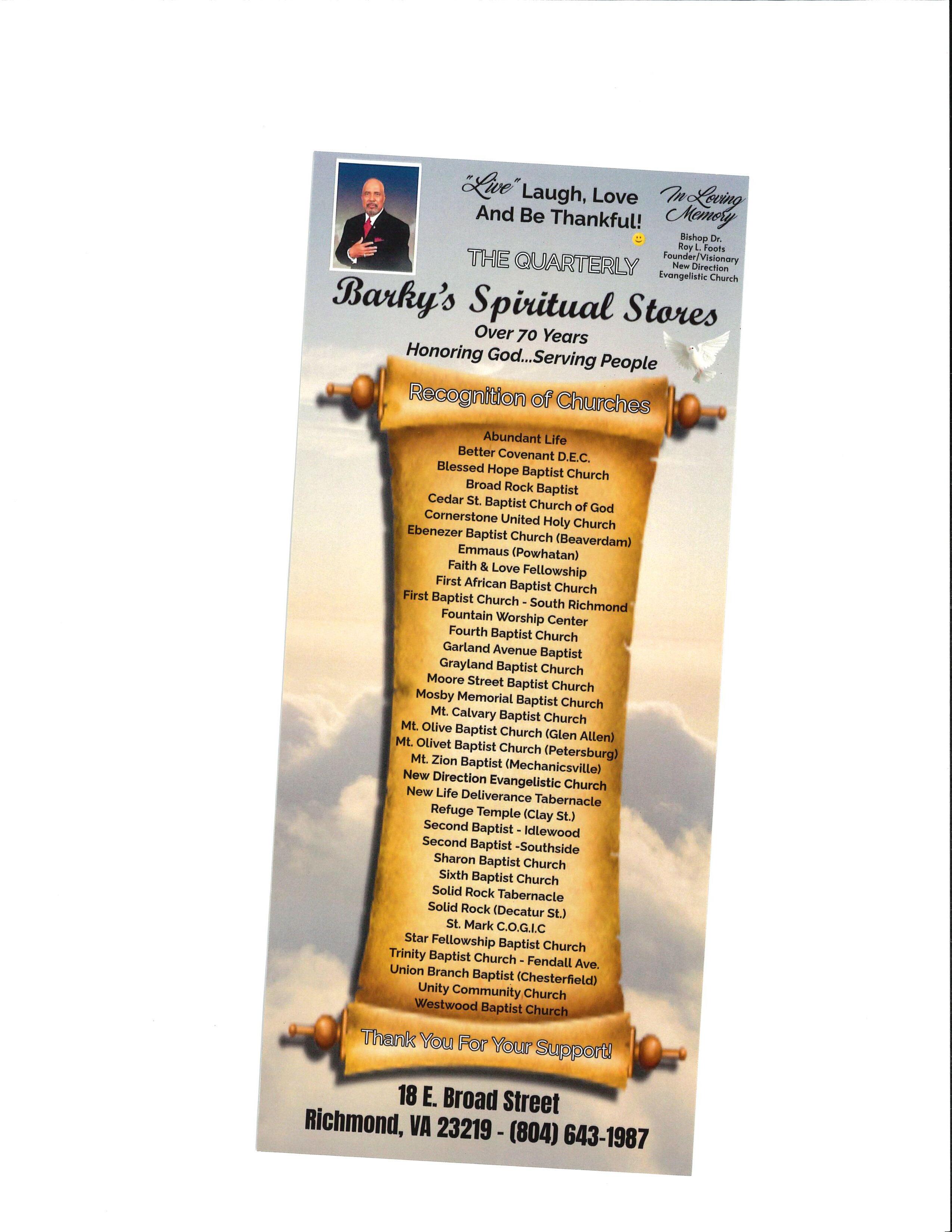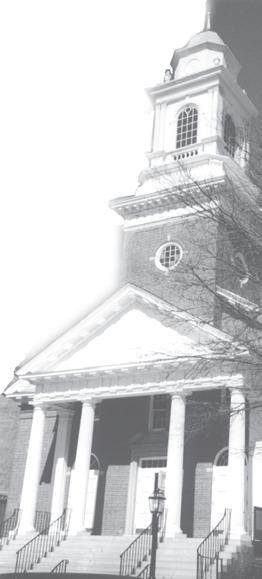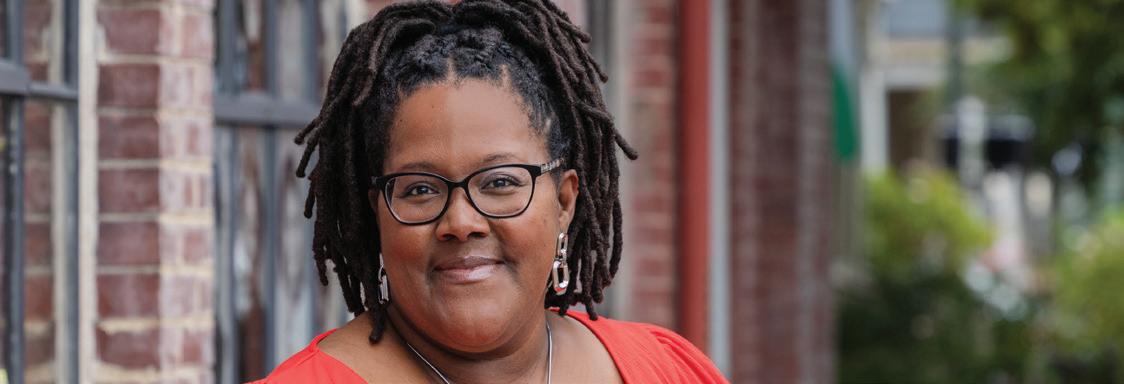





rides. The fair runs through Oct. 5.
By George Copeland Jr.
Eight people were arrested and more than 60 pounds of marijuana seized during coordinated raids on vape shops, a storage unit and residences across the Richmond area, Henrico County police said Wednesday. The raids, conducted with Richmond and Chesterfield police, also uncovered THC edibles and firearms, and authorities impounded several vehicles as part of the investigation.
The searches targeted multiple vape stores suspected of illegally selling marijuana and other illegal substances, including The Simpson Smoke Shop in Henrico, ZAZA Puff Palace and ZAZA Wonderland in Richmond, ZAZA R US in Henrico and Gas City in Richmond. Authorities also searched four residences in Henrico and Chesterfield counties and a storage unit on Springfield Road in Henrico.
“This crime trend is not unique to Henrico County, but rather a nationwide issue,” Henrico Chief of Police Eric D. English said in a statement announcing the arrests.
The raids come after years of scrutiny of vape shops and the broader vaping industry both nationally and locally. Richmond,
Free Press headquarters in Downtown Richmond up for sale
Free Press staff report
The Imperial Building, home to the Richmond Free Press since 2001, has been listed for sale, officials confirmed. Jean Boone, publisher of the Free Press and president and manager of Imperial Building L.C., said the decision reflects shifts in downtown office use since the pandemic.
“With more people working remotely, the demand for traditional office space has shifted,” Boone said.
The three-story building, which includes underground parking, was originally constructed in the early 20th century for the Imperial Tobacco Company of England. It was strategically located across from the Hotel John Marshall and has long served as part of the city’s downtown business district.
The property, totaling about 35,000 square feet, is being co-represented by Jennie Dotts of Long & Foster and Ned Rennolds of Virginia Capital Realty.
The Free Press moved into the building nine years after publishing its first edition in 1992. Boone said the newspaper remains committed to Downtown Richmond despite the sale.

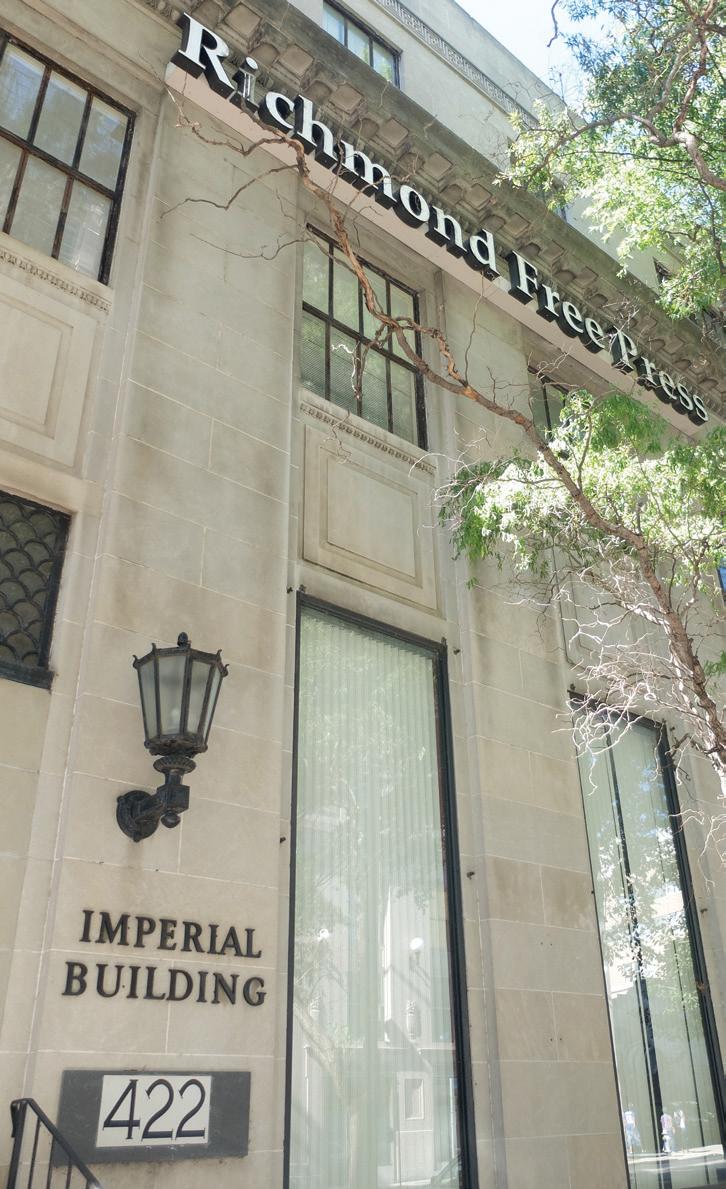
By George Copeland Jr.
Four years after Richmond Public Schools became the first division in Virginia to recognize collective bargaining rights for its employees, school officials and unions are at odds over proposed changes to that process. In a Tuesday news release, the Richmond Education Association and Teamsters Local 322 accused Superintendent Jason Kamras of “attempting to unilaterally weaken workers’ rights” through policy changes set for discussion at the School Board’s Oct. 7 business session. These proposed changes, REA and Local 322 said, would censor and
Health care tax credits remain at center of standoff
By Jennifer Shutt and Ariana Figueroa
The federal government began shutting down early Wednesday after Congress failed to approve a funding bill before the start of the new fiscal year, setting off nationwide disruptions and giving the Trump administration an opening to lay off federal workers. The Senate rejected two short-term funding measures late Tuesday, with both falling short of the 60 votes needed. Republicans’ seven-week plan drew a 55-45 vote, while Democrats’ one-month proposal that included health care provisions failed 47-53.
Three Democrats — Sens. Catherine Cortez Masto of Nevada, John Fetterman of Pennsylvania and independent Angus King of Maine — voted with Republicans on their bill, saying they wanted to avoid harm to families and federal employees. Sen. Rand Paul, R-Ky., opposed it. Cortez Masto said she could not support “a costly shutdown that would hurt Nevada families and hand even more power to this reckless administration.” Fetterman said his vote was “for our country over my party.” King said a short-term extension was “better than chaos.”
In a memo to agencies, White House budget director Russ Vought directed departments to begin “orderly shutdown” plans. About 750,000 federal workers could be furloughed, with an estimated $400 million daily economic impact, according to the Congressional Budget Office. Employees will remain unpaid until funding resumes.
President Donald Trump has pledged mass layoffs during the shutdown, a move unions are challenging in federal court. The American Federation of Government Employees and the American Federation of State, County and Municipal Employees filed suit Tuesday, arguing the administration lacks authority to fire workers in this context.
Please turn to A4
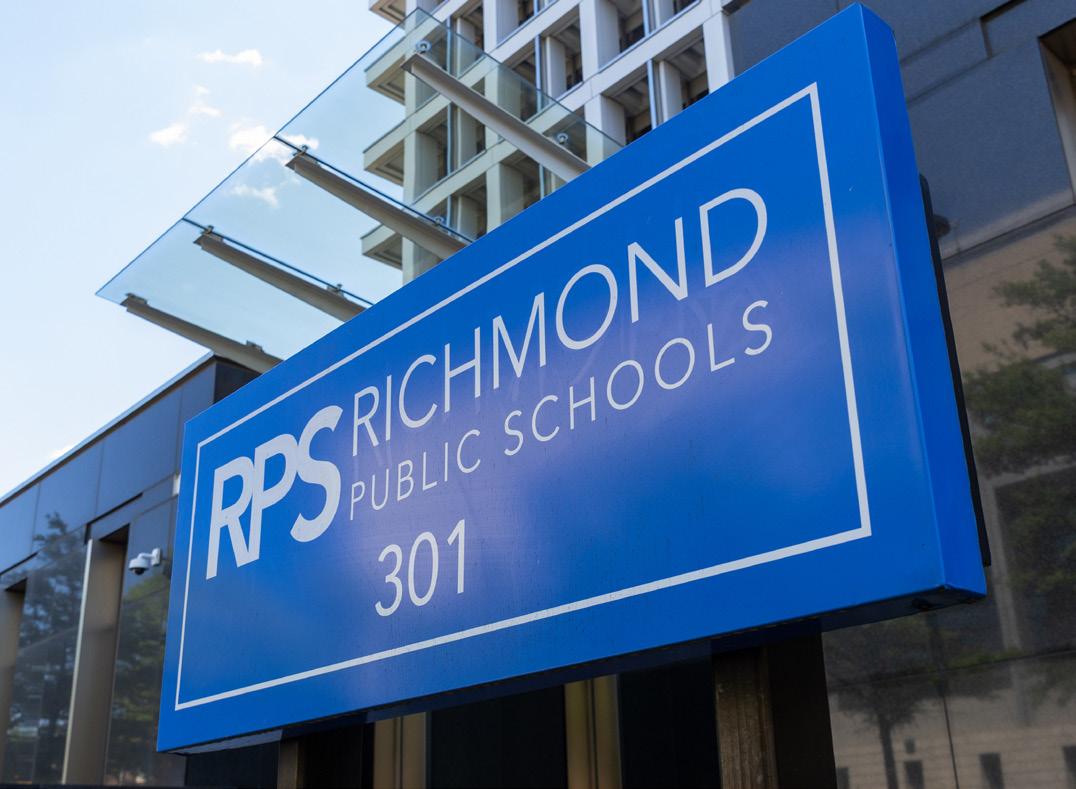
$30,790
By Victoria A. Ifatusin
The Richmond School Board paid $30,790 to its former director of internal audits, Douglass Graeff, as part of his separation agreement with the division.
The payment was dated May 13, around the time that Graeff left the position. Graeff’s departure went unannounced, and he remained listed as the auditor on the school’s website until a September article in The Richmonder disclosed he had left the post.
No reason has been given publicly for his departure.
RPS has been without an auditor since May, when the previous one departed quietly.
The reason for his departure is unknown.
The Richmonder made requests under the Freedom of Information Act to obtain the separation agreement, but RPS has denied those requests, stating they are exempted from disclosure because they were created “specifically for litigation purposes.”
There is no litigation currently between Graeff and the district, but Virginia’s attorney general opined that if a document is created “to avoid or end litigation,” it qualifies under that exemption.
The School Board and division have declined to comment on Graeff’s departure or the agreement, citing district policy that does not allow RPS to comment on personnel matters. Graeff also told The Richmonder that he cannot speak on his departure.
Last spring, Graeff found that many bus drivers were being paid two hours overtime for after-school runs, even if they had not worked the full 40 hours that week or if the run was less than two hours. He estimated RPS paid bus drivers $1.8 million in overtime in fiscal year 2024. The audit resulted in the Richmond schools’ yearlong disagreement with LiUNA — the union representing the bus drivers — and temporary dismissal of five bus drivers for an alleged unlawful striking, which occurred around the same time as Graeff’s exit.
At the meeting where Graeff’s findings were presented in 2024, tempers flared among the board members over the report.
Graeff also found earlier this year that the division’s fraud and abuse tip line was not checked in more than a year, and the account had more than 700 unopened emails.
Currently, the auditor’s office is completely empty, as the district is also without a junior auditor. The junior position was previously at risk of being eliminated from the division’s budget due to its vacancy, but board members demanded to keep it. It is still vacant and will be posted after the board hires the director. The job for a head auditor is still posted online.
This story originally appeared at TheRichmonder.org

Richmond voters are now casting ballots early for the 2025 elections, including races for governor, lieutenant governor, attorney general and members of the House of Delegates. Early voting allows residents to vote in person before Election Day and can help reduce wait times at polling places.
In Richmond, early voting locations include the Office of Elections at 2134 W. Laburnum Ave., City Hall at 900 E. Broad St. and the Hickory Hill Community Center at 3000 E. Belt Blvd. Henrico County voters can visit the Western Government Center at 4305 E. Parham Road, the Eastern Government Center at 3820 Nine Mile Road or the Varina Library at 1875 New Market Road. Chesterfield County residents may use the Central Library at 7051 Lucy Corr Blvd.
Early voting runs through Friday, Nov. 1. Hours are generally Monday through Friday from 8:30 a.m. to 5 p.m., with select Saturdays also open from 9 a.m. to 5 p.m.
The deadline to register to vote in Virginia is Friday, Oct. 24. Residents can register online, by mail or in person at their local registrar’s office. Voters who prefer to vote by mail can request absentee ballots through the Virginia Department of Elections website or by contacting their local registrar. Requests must be submitted by the posted deadlines to ensure ballots are received and returned in time. For the latest information on locations, hours, registration and deadlines, visit elections.virginia.gov.
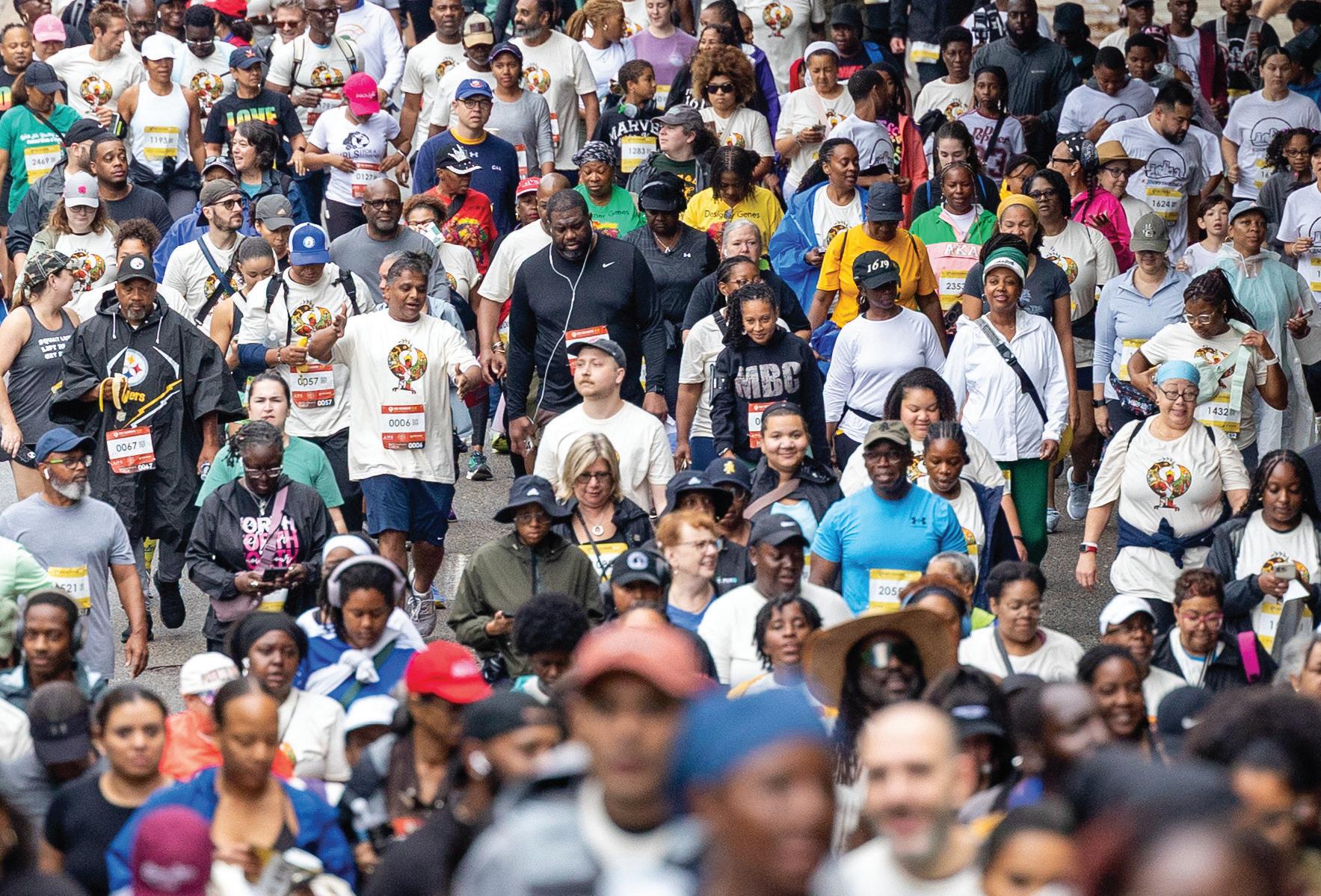
By George Copeland Jr.
Richmond officials are launching a revamped budget process that starts earlier, adds more public input and reorganizes work sessions to improve efficiency.
The changes were highlighted during a budget kickoff event last Thursday at Maymont’s Westover Meeting Room, where city leaders marked the start of the new process and celebrated the work of a joint Budget Task Force that developed six recommendations over the summer to improve how the city prepares its spending plan.
“This process is not just about the dollars and cents of the issue, but it really is about priorities,” Mayor Danny Avula said during the kickoff event.
The kickoff followed a tense 2026 budget cycle, when City Council members complained about too little time to ask questions and review changes.
Along with calling for earlier collaboration between the city and council, the Budget Task Force urged the mayor to submit the budget proposal sooner and to reorganize work sessions around Human Services, Finance and Administration, Planning and Economic Development, and Operations. The panel also recommended a standardized amendment process, more public hearings on the mayor’s plan and council changes, and annual reviews to keep improving the process.
Despite ongoing challenges and concerns about federal funding, officials said they were pleased with the results and level of cooperation so far.
“Together we can make this the kind of
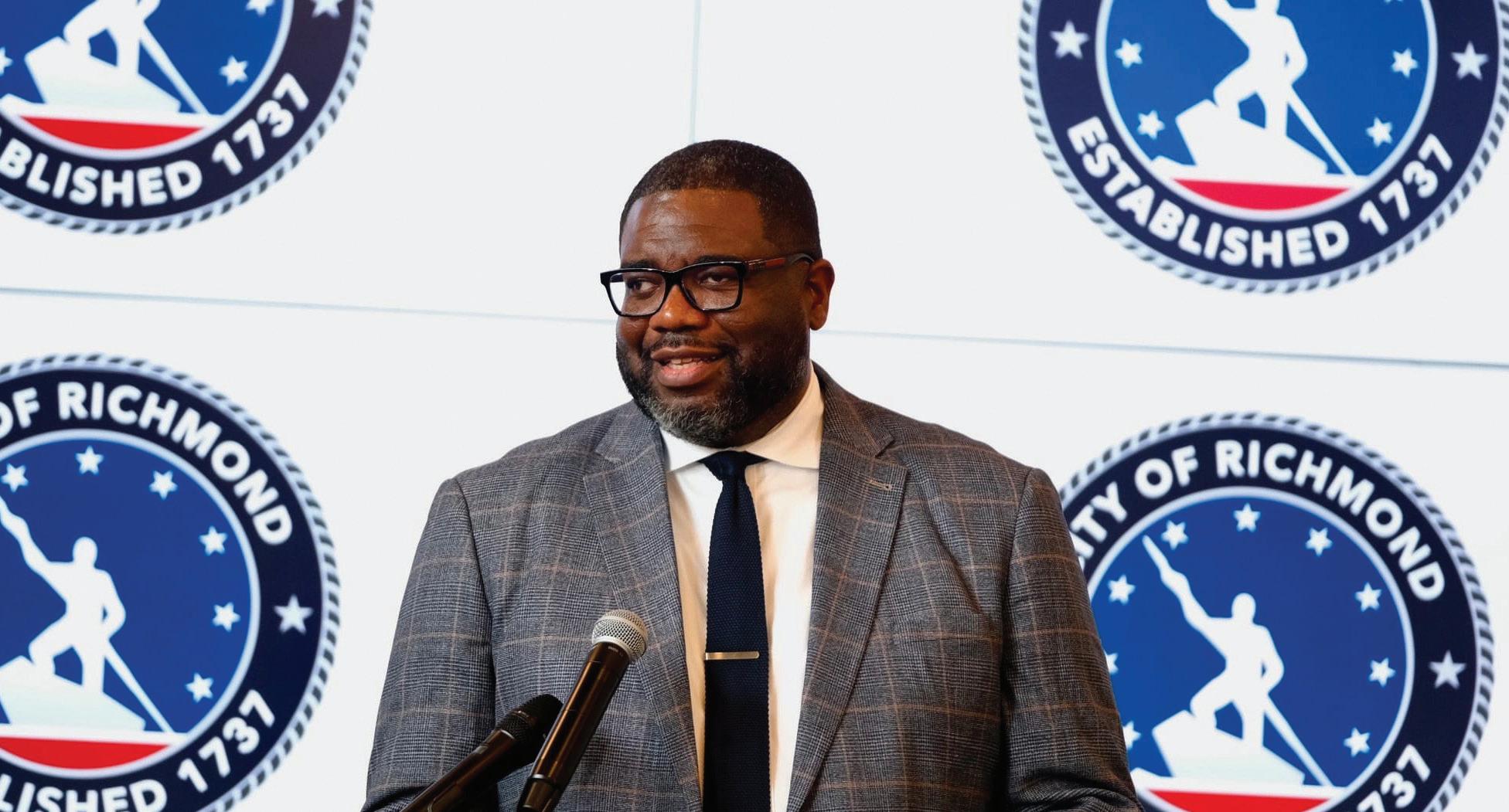
Graham Moomaw/The Richmonder
Richmond Chief Administrative Officer Odie Donald outlines goals for the city’s revamped budget process.
budget that is responsive to our community,” Council President Cynthia Newbille said, “that also incorporates its input, the priorities, the needs for the entirety, not some, but the entirety of our city.”
The new process will also have increased transparency, courtesy of an ordinance approved during last week’s Council meeting, by requiring city departments and agencies to post their budget requests on the city’s website by Jan. 15 each year, alongside the mayor’s proposed budget.
“All we’re asking in this paper is to level the playing field so that we have an understanding of the true need of our departments,” 5th District Council member Stephanie Lynch said during the meeting.
Council members voted 7-2 last week to approve the change through an ordinance
sponsored by Lynch and introduced in April, despite the Task Force’s recommendations and concerns from Avula and other city officials.
Following the budget kickoff, officials are seeking community input to help set priorities across the city’s districts. A meeting in December will establish five to seven shared priorities for Avula’s administration and the council, with public hearings required. Additional input will be gathered through town halls in January and February.
“The fight for our people doesn’t end once you bang the gavel and close us out,” Chief Administrative Officer Odie Donald said. “That just starts the process all over again so we get better the next time over and over, and I think that’s what our citizens expect.”
For decades, footage of Richmond’s marches, rallies and protests sat quietly in police archives. This week, VCU Libraries will bring these rarely seen films into public view.
VCU Libraries will host a virtual panel today to highlight its Richmond Police Department Surveillance Collection, which offers public access to more than 100 restored films documenting local civil rights activity.
The collection features 156 films and 13 audio reels recorded by Richmond police during the 1960s and 1970s. Currently, 112 films are available online through Scholars Compass, with additional material accessible by request in Special Collections and Archives. Newly discovered audio recordings will be added this fall.
The footage captures a wide range of events, including meetings of the Black Panther Party, the Rev. Martin Luther King Jr.’s Poor People’s Campaign of 1968, marches and memorials following
The event, “Inside the Richmond Police Department Surveillance Collection,” begins at 12:30 p.m. on Zoom. Registration is required.
King’s assassination, anti-Vietnam War protests, American Nazi Party rallies, Ku Klux Klan parades and marches against school desegregation busing.
Panelists will discuss the collection’s historical value, its preservation and its ties to other archives at The Valentine museum. Speakers will include Brian Daugherity, a VCU history professor; Meg Hughes, deputy director of collections at The Valentine; and Irina Rogova, digital initiatives librarian at VCU Libraries.
More information about the collection and a search tool are available at library. vcu.edu.
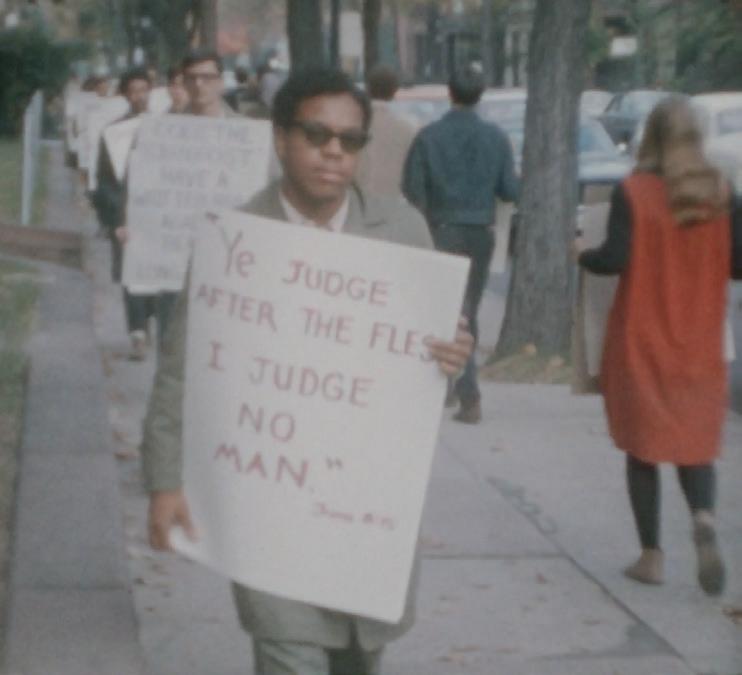
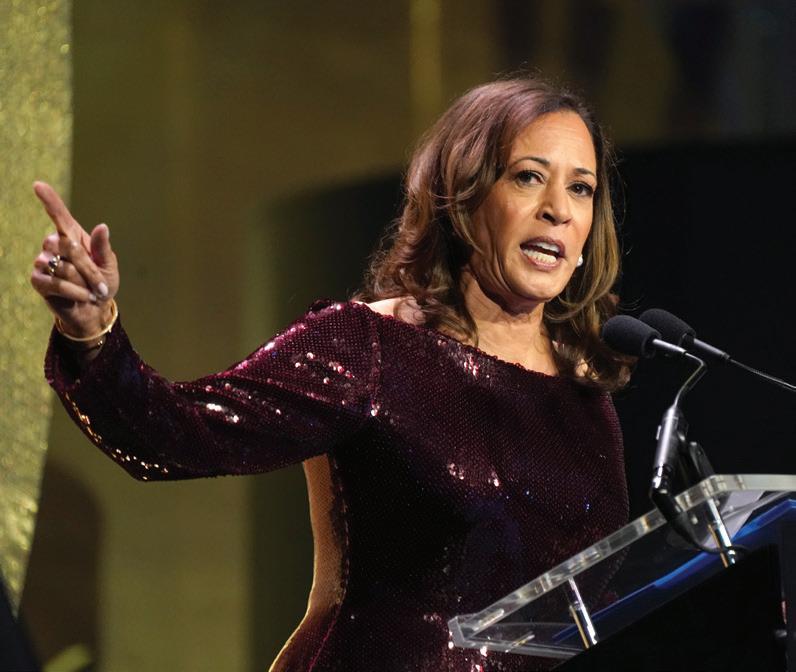
Former Vice President Kamala Harris and Maryland Gov. Wes Moore urged members of the Congressional Black Caucus to remain resilient and take action in the nation’s challenging political climate during the Congressional Black Caucus Foundation’s 54th annual Legislative Conference Phoenix Awards Dinner on Saturday.
Harris, recipient of the evening’s CBCF Board Chair and CBC Body Awards, delivered a forceful message to the 61 members of the Congressional Black Caucus, warning against complacency and urging Democrats to defend constitutional checks and balances.
“The United States Congress has equal power to the executive branch in our constitutional government. Your work, now, is more important than ever, especially as your colleagues bend the knee and fail to uphold their constitutional duty,” Harris said. “A time such as this demands that the leaders in this room remind the people
of their power. We must win the midterms and enforce checks and balances on this unchecked, incompetent, unhinged president.”
Moore emphasized the power of the CBC and its historical role in defending Black communities.
“The Congressional Black Caucus was built for this moment, because the Congressional Black Caucus was built in moments like these,” he said. “History is not going to remember this administration well. But also, to those that are sitting down and doing nothing, to those that are capitulating — history will remember you worse.”
Other speakers included House Minority Leader Rep. Hakeem Jeffries, CBC Chair Rep. Yvette D. Clarke, CBCF President and CEO Nicole Austin-Hillery, and award recipients Angela Rye and Jotaka Eaddy. They highlighted the CBC’s role in advancing equity, economic development and policy solutions for Black communities.
“The founders of the CBC gave us a charge from the very beginning,” Jeffries said. “At all times, we should be charged with standing up
for the safety and well-being of our community and of the country.”
Clarke, who heads the largest Congressional Black Caucus in history, emphasized the caucus’ ability to drive progress.
“We have the power to meet this moment,” she said. “Aided by the CBCF, its research and the young leaders it is developing, we have concrete measures to advocate for equity and the economic development of Black communities.”
Austin-Hillery praised the CBC’s ongoing leadership and reiterated the foundation’s support.
“I pledge to them and to you that the CBCF will continue to support and sustain them in the struggle,” she said.
The Phoenix Awards Dinner, co-hosted by Aldis Hodge and Samantha Walkes, capped the CBCF’s annual conference under the theme “Made for This Moment: Power, Policy, &
ress,” celebrating individuals who have

By Tyler Blake Capital News Service
The upcoming Virginia gubernatorial election will make history, with the state’s first female governor poised to take office in January, but it is not generating as much money as some past races. Republican nominee and current Lt. Gov. Winsome EarleSears and Democratic nominee Abigail Spanberger are making their final pushes before voters fill out their ballots.
Even with the historic implications, total fundraising for this gubernatorial race is substantially down from other recent elections, according to the Virginia Public Access Project.
Political action committees, or PACs, are tagged as the industry that gives the most money in Virginia statewide races. As of Sept. 29, just over $16 million has been donated from PACs on both sides of the aisle, a decrease from the $40.5 million donated in 2021 and the $36 million donated in 2017, although money is still coming in, according to VPAP.
This year’s numbers are lower than recent elections, but it doesn’t necessarily mean the election is not drawing interest, said Richard Meagher, professor of political science at RandolphMacon College.
“Sometimes it’s an outlier, like in 2021, you have a very, very wealthy individual, Glenn Youngkin, running against a very, very well-connected fundraiser, Terry McAuliffe,” Meagher said.
Because the last election raised such high financial numbers, it may be skewing ideas of what to raise in future elections, Meagher said.
Both nominees have garnered a substantial amount of funding from individual donations outside of Virginia, according to VPAP. Spanberger has seen nearly 42% of her individual donations come from out-of-state contributors, while Earle-Sears has received 36% from such donors.
“That’s more and more the trend,” Meagher said. “Being a Democrat in Virginia matters much more to national Democrats than it used to.”
Virginia is one of four states in the country that hold oddyear elections outside the year of a national election, according to the National Conference of State Legislatures.
This draws participation from both political parties nationally, as they may not want to wait until their next election to try to make a difference, Meagher said.
The second-highest industry to donate to statewide candidates is miscellaneous groups, according to VPAP. They have donated $14 million toward both political parties as of Sept. 29.
Within this industry, retirees top the charts in total money donated, with in- and out-of-state donors. In a close second, nonwage earners have contributed several million dollars to nominees in this race.
Donors within this category do not list their occupations or backgrounds, so it cannot be determined what industry they would align to, according to a VPAP representative. They are
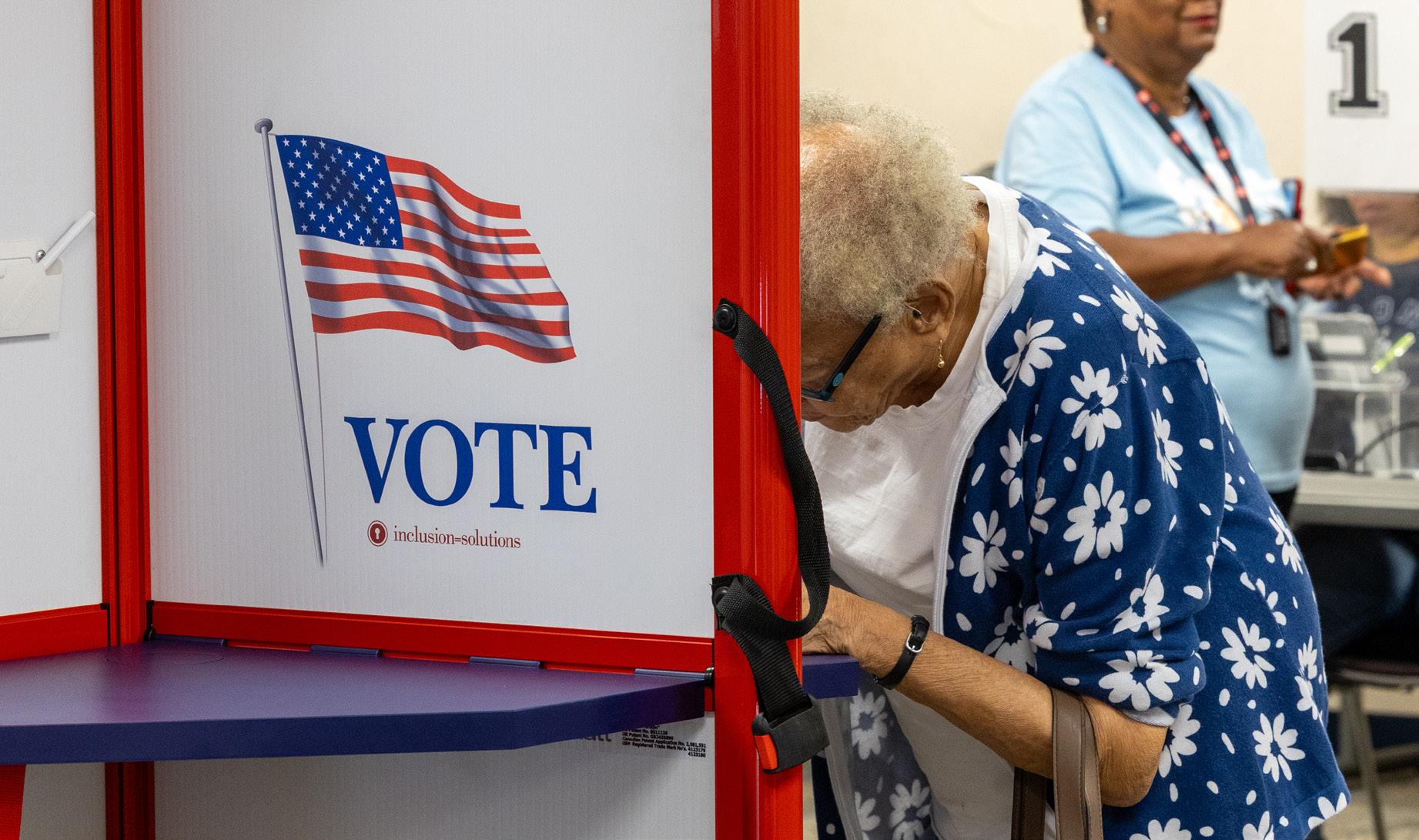
listed as nonwage earners.
Single-issue groups claim the No. 3 spot for statewide candidate donations.
Donations tagged environmental groups lead at $3.6 million, with most coming from nonprofit Clean Virginia, which now competes against Dominion Energy with political donations.
Miscellaneous single-issue groups such as veterans groups are the second top donors under this category, followed by abortion rights and gun control.
Real estate is the No. 4 industry, with $5.8 million donated so far.
Developers lead the fundraising charge within the real estate industry, with more than $2.1 million donated, according to VPAP. Several of the top donations are to Republican candidates.
“Real estate developers always donate money,” Meagher said. “They’re always a kind of powerful interest. Sometimes they focus more on local constituencies … they might work in local elections because they think they can get something out of it.”
Also paying into the political pot now is gaming, notably sports betting. Gaming has only been legal for a handful of years in Virginia, but it has been a large player within the state’s economy. The state has made nearly $2 billion in revenue from sports betting since the first legalized bets were accepted in January 2021, according to numbers from the Virginia Lottery.
The rise of the gaming lobby in Virginia is a result of new casinos and legalization of online sports betting.
“That’s why you’re seeing more and more money being
thrown around,” Meagher said.
Since Virginia’s last gubernatorial election, Spanberger has received a higher amount of cash contributions of $100 or less and from a greater number of donors than her opponent, EarleSears, according to VPAP.
“If you’re looking at the strength of a candidate, you don’t want to just look at their dollar amount totals, you want to look at the number of contributions they get,” Meagher said.
This number heavily favors Spanberger, which suggests support for her campaign is deep and is more of a grassroots effort than Earle-Sears.
“I think one of the reasons that people are really bullish on the Democrats’ chances this year is it’s not just that the money is coming in from big money donors in the national Democratic groups, it’s that the money is coming in from individuals,” Meagher said. “People are fired up to give their $20, their $10, their $50 to Spanberger.”
Even though the financials seem to heavily favor Spanberger, this does not mean she is guaranteed to win. All polls have Spanberger ahead of her opponent, but there is no victor until all the ballots are officially counted.
“Just because you have more people than the other side who are going to cut you checks doesn’t mean that those people are all going to vote, or that they translate into the same amount of votes,” Meagher said.
Early in-person voting is open until Nov. 1. Election Day is Nov. 4, with polls open from 6 a.m. to 7 p.m.
Continued from A1
“These actions are contrary to law and arbitrary and capricious, and the cynical use of federal employees as a pawn in Congressional deliberations should be declared unlawful and enjoined by this court,” the filing says.
Partisan impasse
Senate Majority Leader John Thune, R-S.D., said Democrats had “chosen to shut down the government” but insisted a solution was within reach if five Democrats crossed party lines.
“The negotiation happens when the government is open,” Thune said. “Democrats may have chosen to shut down the government, but we can reopen it tomorrow.”
Sen. John Barrasso of Wyoming, the Republican whip, pointed to Democratic defections as a sign of momentum. “The cracks in the Democrats are already showing,” he said.
Senate Minority Leader Chuck Schumer countered that Republicans were refusing to address health care tax credits expiring at year’s end. Without action, premiums on Affordable Care Act marketplace plans could more than double by 2026, from $888 annually to $1,904, according to an analysis by the nonprofit KFF. Schumer accused Republicans of spreading false claims that undocumented immigrants could receive ACA subsidies.
“That is absolutely false,” he said. “Undocumented immigrants do not get federal health insurance premiums.”
Pressure within both parties
While Democrats face pressure over the defection of three members, Republicans are also hearing concerns. Sen. Susan Collins, RMaine, chair of the Appropriations Committee, said she was troubled by signals from the Office of Management and Budget about possible mass firings.
“They’re performing very essential work,
they’re just not being paid,” she said of furloughed workers.
Sen. Josh Hawley, R-Mo., said he worried about the toll on working people.
“The solution is to not shut the government down,” he said. “Why would you punish working people because you’re not getting what you want?”
Sen. Mike Rounds, R-S.D., said he expects the standoff to last until Democrats feel they have made their point.
“I’m not optimistic that we’re going to get a path forward until they’ve had a shutdown,” he said.
Shutdown effects
Agencies began releasing contingency plans.
The Interior Department will furlough 9,300 of 14,500 National Park Service employees. Roads, trails and open-air memorials will remain open unless safety becomes an issue, although services will be limited.
Essential operations like border protection, emergency response and firefighting will continue.
Health care fight at core
Democrats have made the extension of ACA tax credits their central demand, arguing the credits are vital to families and must be resolved before the Nov. 1 open enrollment period. Schumer said families would soon receive premium notices, adding, “There will be huge heat on Republicans on this issue.”
Rep. Yvette Clarke, D-N.Y., chair of the Congressional Black Caucus, said Democrats would keep pressing for health care protections, calling the GOP approach “reckless.”
Sen. Elissa Slotkin, D-Mich., said she was willing to negotiate.
“I’m willing to accept that I certainly will not get everything I want,” she said.
Senate Minority Whip Dick Durbin, D-Ill., said Democrats could not support a continuing
8 arrested, 60 pounds of marijuana seized in area vape shop raids
Continued from A1
Chesterfield and Henrico officials have repeatedly raised concerns about the number of smoke shops in the region, their failure to comply with regulations and the potential risks to children and teens.
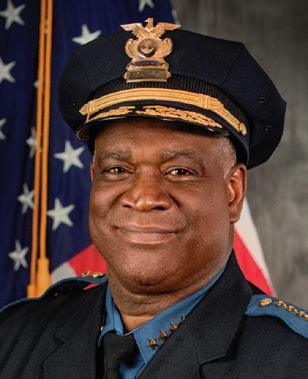
“One of our biggest concerns is our youth coming into possession of this product,” English said. “We do have cases, dating back to 2024, where minors have broken into a vape shop, stole illicit product and then sold it to their peers.”
These criticisms prompted the Chesterfield Board of Supervisors to restrict new shops in 2023, with similar measures approved by the Henrico Board of Supervisors in 2024 and Richmond City Council in July. Henrico officials have also barred vape shops from the county’s investment program funds and are exploring ways to better regulate stores, including a task force to audit for illegal activity.
One individual remains at large, and further indictments are possible, according to Henrico police, signaling that the investigation is ongoing.
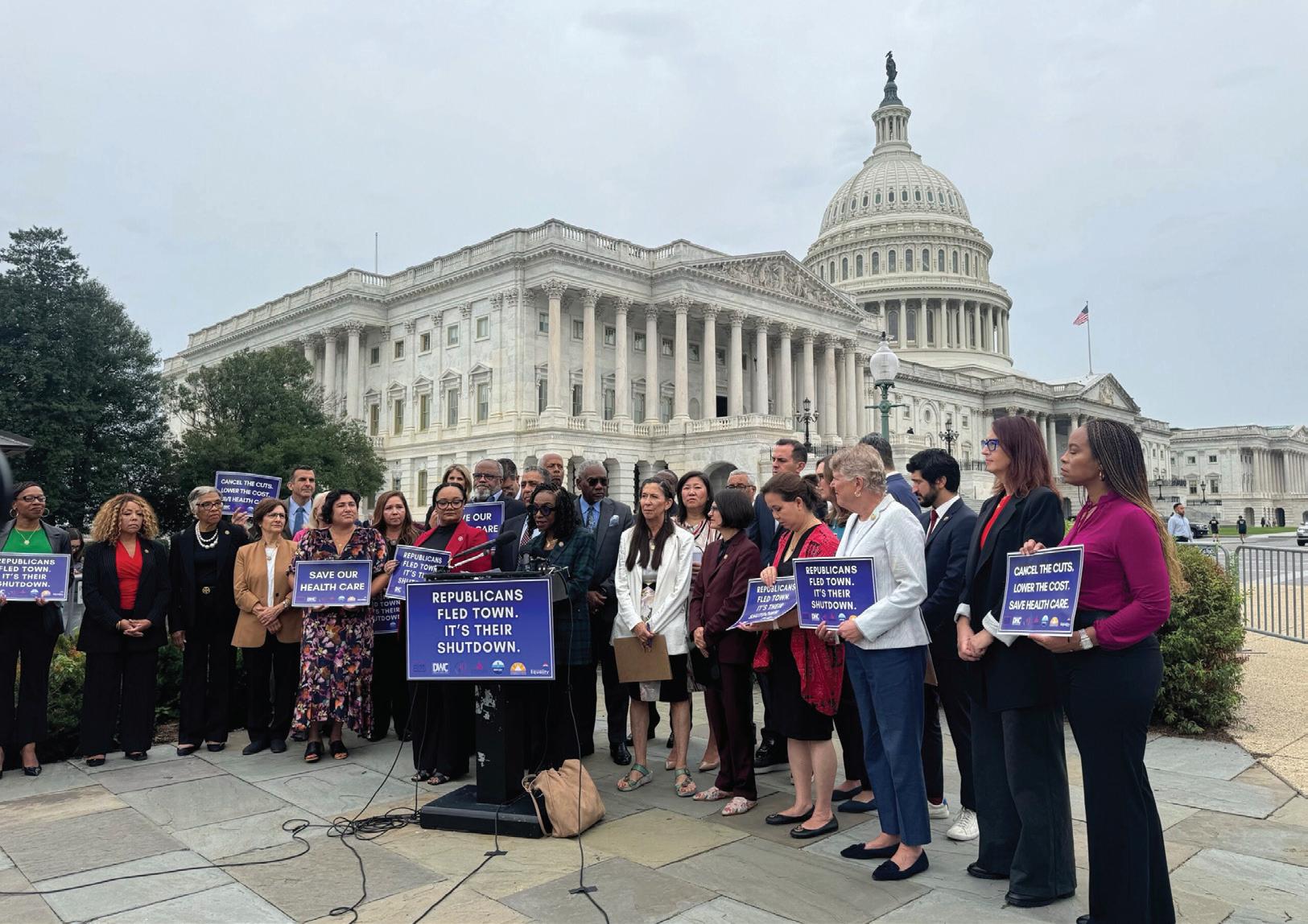
Clarke,
“What President Trump is doing to this country, particularly when it comes to health care costs for families,” he said, “is unacceptable.” Uncertain road ahead
With no full-year appropriations bills passed, the shutdown affects nearly every federal agency. The start of the fiscal year on Oct. 1 left law-
makers with no fallback plan. Republicans say they will continue offering a “clean” stopgap bill. Democrats insist on negotiations tied to health care.
“I’m not optimistic,” Rounds said. “But at some point, we’ve got to find a way forward.” This story originally appeared at VirginiaMercury.com.
Continued from A1
workers’ free speech, trigger mechanisms to cut employee pay without negotiation, reduce bargaining scope in worker contracts and weaken the mediation and grievances processes.
“These provisions are weaker than the federal labor law that Trump recently gutted,” REA and Local 322 said. “After decades of assaults on workers, it would be dangerous for local governments to compound these attacks.”
The School Board, in a statement released hours after the REA and Local 322’s news release, presented the proposed policy revisions as efforts to improve the collective bargaining process, developed after discussion with and feedback from employees and staff.
The revisions, it said, would remove duplicative grievance processes, simplify impasse and mediation procedures, and implement provi-
sions when funding is available. They would also ensure negotiations are conducted with a focused set of issues, and that negotiations and advocacy don’t impact schools and students.
The School Board also disputed “allegations to the contrary” that free speech restrictions “were ever discussed,” and said feedback following discussions with union partners has already led to changes in the proposed revisions.
“The revisions outlined above are an attempt to make our processes clearer, more efficient, and more sustainable — both in terms of funding and staff time,” the board stated. “We owe that to our stakeholders, the taxpayers and most importantly, our students.”
REA and Local 322 members plan to hold a news conference and rally Monday at 5 p.m. outside City Hall, calling on the School Board to “reject this authoritarian approach” ahead of its work session that evening.
By Louis Hansen Virginia Center for Investigative Journalism at WHRO
As Virginia’s public colleges and universities expanded to meet growing demand for higher education, several targeted majority-Black neighborhoods.
Old Dominion, Longwood and Christopher Newport universities were among the most disruptive developers in Black communities, acquiring hundreds of properties over decades, according to a new state commission survey.
All but one of Virginia’s 16 state colleges and universities reviewed property transactions, university records and newspaper clippings to assess their impact on Black communities. Ten schools acknowledged encroaching on Black neighborhoods, sometimes through the use or threat of eminent domain. Five reported no acquisitions, and Norfolk State University is still conducting research.
tration removed stories about Black, Asian and Latino history from government and military websites and deleted references from national parks.
The Virginia commission was launched last year following an investigative series by the Virginia Center for Investigative Journalism at WHRO and ProPublica documenting property acquisitions in Black neighborhoods near Old Dominion, Christopher Newport and other universities.
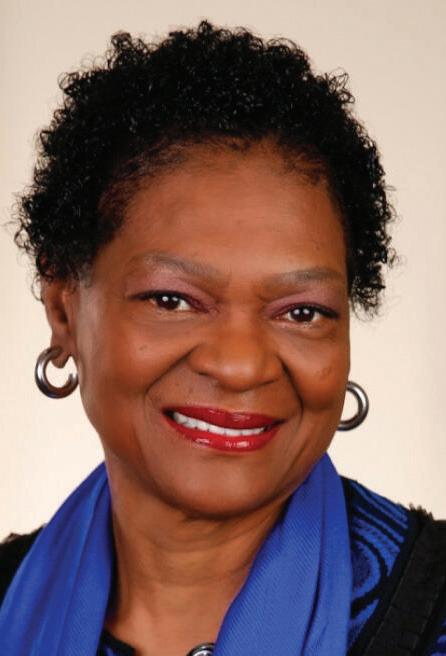
The self-reporting is a start, but more research is needed, said Del. Delores McQuinn, D-Richmond, chairwoman of the Uprooting of Black Communities commission.
“It is an effort to really look at history,” McQuinn said Sept. 25 after a committee hearing.
“Even in 2025, there’s a pause for a moment: Let’s look into this and see what we can do to repair some of the damage that has been done.”
McQuinn said the work is not meant to punish or embarrass institutions, but to find a reckoning for displaced families and seek proper redress. Many families still feel pain and anger from being pushed from homes and apartments decades ago, she said. The initial research comes as diversity programs face attacks. The Trump adminis-
In reports to the Uprooting Commission, 10 schools acknowledged using eminent domain or making some property purchases in majorityBlack neighborhoods. Longwood, ODU, CNU and the College of William & Mary, which originally operated Old Dominion and Christopher Newport, reported extensive acquisitions.
William & Mary said it is not aware of any property acquired through eminent domain in modern times.
Radford, the University of Virginia, Virginia Commonwealth University, Virginia Military Institute, Virginia Tech, Virginia State University and the Virginia Community College System reported at least some purchases in Black communities.
Five universities reported no targeted land purchases: George Mason University, James Madison University, the University of Mary Washington, the University of Virginia’s College at Wise and the educational component of the JamestownYorktown Foundation.
Some universities acknowledged the disruption to Black families and have addressed the histories with proclamations, events and scholarships.
Longwood University in Farmville said it acquired about 70 parcels in an area known as the Triangle, including 11

through condemnation. The university vowed to stop using eminent domain in 2004 and formally apologized for its inaction during Massive Resistance. It also initiated scholarships and a partnership with the Moton Museum to recognize Black history in Farmville and Prince Edward County.
ODU expanded through the Lamberts Point neighborhood in Norfolk, acquiring more than 160 properties beginning in the 1960s. In the 1990s, the university sought to improve relations with the community and established scholarships for minority students from the neighborhood.
A joint committee of officials from CNU and the City of Newport News is researching the school’s expansion into the neighborhood around Shoe Lane beginning in the early 1960s.
The Uprooting Commission received $200,000 from the General Assembly this year to study displacement impacts and to consider restorative justice for affected families. The panel expects to hire a researcher this year to assist.





Look out, my fellow tenacious reporters and grizzled editors — we think there may be a person on council that’s after all of our hearts. Last week, City Council member Kenya Gibson proposed creating a centralized online FOIA library — a place where every document released to a resident or reporter would be publicly available at no extra cost.
“Our government should be transparent, participatory, and accessible to all of us, not just the powerful few,” Gibson wrote in a news release.
“This means everyone from journalists to public employees to everyday residents should be able to ask hard questions of city officials and get clear answers.”
You had us at “transparent,” council member.
It’s a bold idea, and it comes after the previous administration’s apparent preference for keeping information locked down. In March 2024, the city’s former FOIA officer, Connie Clay, filed a $250,000 whistleblower lawsuit against her former employer. She alleges, among other things, that requests for information were routinely delayed, denied, ignored or laden with steep fees.
Any reporter who attempted to cover the city is likely familiar with stalled requests for reports, schedules or other records that should have been public. Delays, denials and hidden documents frustrate journalists and citizens alike, leaving residents in the dark about decisions that affect our neighborhoods, taxes and services.
This is not the way to do the public’s business. We’re hopeful that the current administration has learned from its predecessors’ mistakes.
Gibson isn’t so sure. While her proposal awaits a review by the Governmental Operations Standing Committee, she states that City Hall is already “pushing back,” and mentions the recent purchase of software that allows easy redaction of FOI requests.
“Decades of corruption and untransparent decision making have led Richmonders to distrust city officials, electeds and public services. We must restore this trust,” she stated.
We agree, City Hall can’t keep playing peek-aboo with public records. Richmonders are watching, reporters are watching, and the law is watching. A FOIA library might sound like a small change to some, but it’s really a test: Can the city run itself in the light or keep stumbling in the shadows?
When we look back on 2025, once we process the general upheaval of governmental norms and the fractured political discourse, we might ask ourselves a question: What was up with all those vape and smoke shops?
While we’ve been doomscrolling and learning to live with uncertainty, these stores seem to have dotted the landscape overnight. It’s hard to get a count of how many there are, as some of these places aren’t officially registered, but one report has their number at about 70. That’s not counting the corner stores that have added these products to their inventory.
Richmond’s vape shops are part of a nationwide story — one of unregulated markets, teenage access and federal crackdowns.
This month, the federal government has also taken notice. On Sept. 10, agents seized hundreds of thousands of illegal vaping products in raids across the country, part of the Trump administration’s push to crack down on devices that teens have been getting their hands on — often smuggled in from China.
Locally, police in Richmond, Chesterfield and Henrico have been involved in raids of at least five local shops last week.
As federal and local authorities fight back, the bigger concern remains the teenagers who are getting hooked. And questions linger in the air: How did we get here, and how do we stop it?

Everywhere I go lately, people whisper the same question: Are we sliding into another blacklist era? They point to what happened to Stephen Colbert. They point to what happened to Jimmy Kimmel. They point to other entertainers whose shows, jokes or politics suddenly seemed to cost them work.
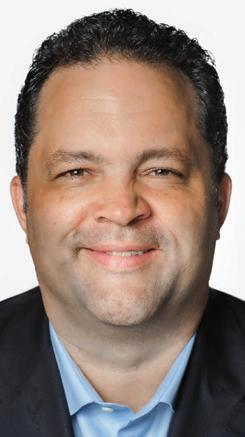
The fear is real. The memory of Hollywood’s first blacklist — when actors, writers and directors were cast out of their professions under suspicion of disloyalty or mere association with the left — has never entirely faded. Now, in an age of hyperpartisan media and culture-war politics, it feels dangerously relevant again.
So what do we do about it?
Part of the answer will, as always in America, involve lawsuits. John Henry Faulk’s case against AWARE Inc. in the 1950s proved that in a courtroom, lies can be punished and reputations restored. That victory helped collapse the blacklist. But legal action, powerful as it can be, has never been the whole story.
The final, cultural death knell of the blacklist came not from a
judge’s gavel but from a march. On Aug. 28, 1963, hundreds of thousands gathered at the Lincoln Memorial for the March on Washington for Jobs and Freedom. The headliners were the Rev. Martin Luther King Jr. and A. Philip Randolph. But scattered throughout the crowd — and seated in solidarity near the stage — were some of the biggest stars in Hollywood: Sidney Poitier,
Harry Belafonte, Lena Horne, Charlton Heston, Marlon Brando, Paul Newman, Joanne Woodward, James Garner, Burt Lancaster, Diahann Carroll and more.
And I say this as someone who has studied and lived these movements: Virgil Frye was there, too — and he helped organize them to get there. Frye, later remembered for his role in “Easy Rider,” was a working actor whose career was scarred by the blacklist, forcing him to shift into directing. Yet he still took enormous risks to support the movement. As a white man traveling to places like Gadsden, Alabama, he stood shoulder to shoulder with Black organizers at a time when “race traitors” were often punished more brutally by white Southern police — and
in some cases feared more by segregationists than the Black activists themselves. His courage was echoed decades later by his daughter, Soleil Moon Frye — Punky Brewster to a generation — who was arrested with me outside the White House protesting for voting rights. That’s what solidarity across generations looks like.
Here’s the crucial point: Those artists protected one another. A lone actor might have been blackballed. But when Poitier, Belafonte, Horne, Heston, Brando, Newman, Woodward, Garner, Lancaster, Carroll, Frye and others all stood together, the studios couldn’t punish them all. Safety came in numbers. Their collective presence made clear that the blacklist had lost its grip.
The very next day, King and Randolph headlined a socialist convention — the kind of gathering that, a decade earlier, could have landed every participant on a blacklist. Two days later, the actors who had risked standing in Washington went back to work. Their phones still rang. The studios still hired them. Their careers were intact.
In short: They had gone to Washington to demand freedom for Black Americans, and they returned home with a renewed freedom of their own. By break-
Conflict entrepreneurs behind our broken politics
I have long become accustomed to what I call the “BTMF” reflex whenever a great, newsmaking calamity or outrage happens.
That’s short for “Blame the media first.”
As a longtenured jour nalist, I try not to take it personally. Yet sometimes the complainers have a point, and we in the news business would do a better job and provide better public service if we listened.
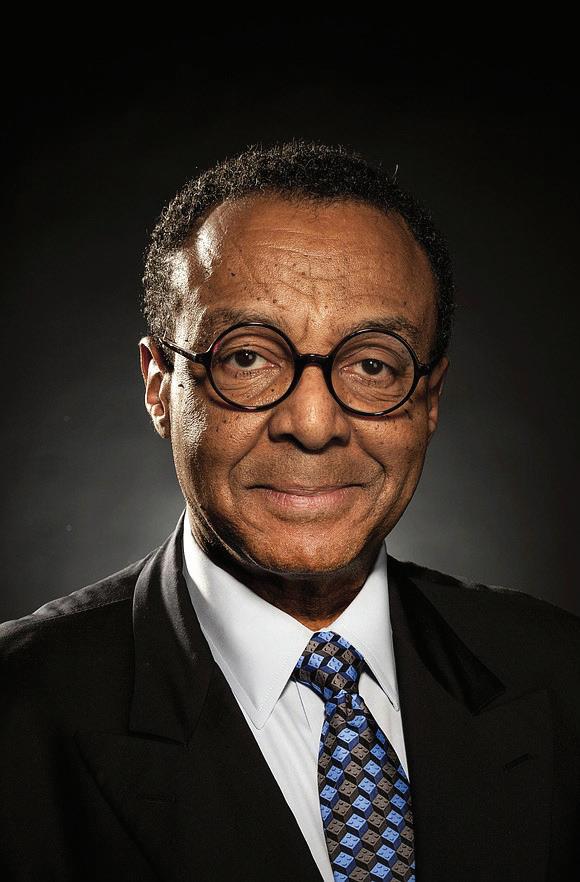
That’s why amid the anger, fear and recrimination that followed the assassination of conservative activist Charlie Kirk, a couple of timely words from Utah’s Republican Gov. Spencer Cox stayed on my mind: “conflict entrepreneurs.”
“I can’t emphasize enough the damage that social media and the internet is doing to all of us, those dopamine hits,” he explained in a later interview on NBC News’ “Meet the Press.”
“These companies, trilliondollar market caps, the most powerful companies in the history of the world, have figured out to how to hack our brains, get us addicted to outrage, which is the same type of dopamine, the same chemical that you get from taking fentanyl, get us addicted to outrage, and get us to hate each other.”
Cox makes an important point. As long as I’ve been a journalist, I have heard complaints about the media bringing more heat than light, even in the once-respected print and broadcast realms.
But social media have amplified this tendency exponentially. Their algorithms are designed
to capture and retain eyeballs, and few things do a better job than good old-fashioned outrage.
And given that they submit to minimal moderation and no editorial oversight, amateur social media “influencers” are free to lie and shill and manipulate reality if they find these tactics build their audiences and fill their bank
accounts. And the audiences are huge for many influencers, similar in size to those once reserved to major network anchors.
I don’t advocate censorship. I do advocate good sense.
Cox raised a question on many minds and across party lines: Will Kirk’s shocking murder finally mark a turning point in this era of recurring political violence?
“This is our moment,” he told reporters. “Do we escalate, or do we find an off-ramp?”
But there was a question Cox did not ask, or answer: Was Charlie Kirk himself a conflict entrepreneur?
Many who eulogized him tried to portray him as having been a moderate, reasonable voice on the right. How, then, do we explain these quotations, helpfully collected by Britain’s Guardian website:
“I see a Black pilot, I’m going to be like, boy, I hope he’s qualified,” he said in a podcast last year.
“If you’re a WNBA, potsmoking Black lesbian, do you get treated better than a United States Marine?” he said on his show in 2022.
“It’s happening all the time in urban America, prowling Blacks go around for fun to go target white people, that’s a fact. It’s happening more and more,“ he said in 2023.
“If I’m dealing with somebody in customer service who’s a moronic Black woman, I wonder, is she there because of her excellence,” he said last year, “or is she there because of affirmative action?”
Then there was the professor watchlist that Kirk maintained, which facilitated the electronic harassment, including death threats, of dozens of academics for the crime of holding views that were too liberal for Kirk’s liking.
Kirk was a highly successful media entrepreneur.
Mostly, the messages delivered in Kirk’s podcasts were standard Republican fare; occasionally, they were hateful and ignorant.
That’s the problem with the ignorant, whom I feel bound professionally and humanly to lead to a better place. They know not what they do.
But the excuse of ignorance is not available to the conflict entrepreneurs. They know what they are doing. They play to the ignorant. They wish to profit from keeping the ignorant in that state.
I’ll give Kirk his due. He was not the most extreme among the conflict entrepreneurs of the right. He constantly invited his audiences to do their best in disputation; he faced them, rather than just hurling insults like.
Conflict entrepreneurs give themselves away if they can’t describe a clear and positive end goal for the conflict — or if their words and actions tend to fuel more animosity and division than promote understanding.
What American politics needs right now is meaningful dialogue, discourse that brings more light than heat. Unfortunately, I’m not sure how well that works as a business proposition.
The writer is a columnist at the Chicago Tribune.
ing the unwritten rule of silence — and by showing courageous love in standing with those most under attack — they showed the industry and the country that the blacklist no longer held. That’s the deeper lesson for us now. Lawsuits may help. Court battles may chip away at injustices. But the true end of a blacklist comes when artists, workers and citizens together refuse to play by its rules. When they stand up publicly, they rob the blacklist of its power. If we are, in fact, drifting toward a second blacklist era, the way out will look familiar. Not only in the courtroom, but in the streets. Not only in legal victories, but in the collective courage of people willing to risk their own status to defend the dignity of others. The artists who marched in 1963 helped liberate Black people. And they also helped free themselves. The writer is a professor of practice at the University of Pennsylvania.




AI is everywhere, but its powerful computing comes with a steep cost to our planet, our neighborhoods and our wallets.
AI servers are so energyhungry that utilities are keeping coalfired plants slated for closure running just to meet demand.
In the South alone, plans call for 20 gigawatts of new natural gas power plants over the next 15 years

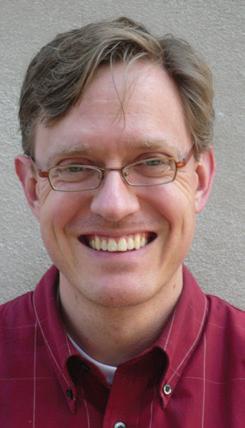
— enough to power millions of homes — just to feed AI’s insatiable appetite for energy.
Multibillion-dollar companies like Microsoft, Google, Amazon and Meta, which previously pledged to rely on 100% renewable energy, are going back to the Jurassic Age, relying on fossil fuels like coal and natural gas to feed their massive servers. Even nuclear plants are being reactivated to meet energy demands. Carbon emissions from major tech companies
in 2023 skyrocketed to 150% of average 2020 levels.
AI data centers also produce massive noise pollution and consume huge amounts of water. Residents near data centers say the noise keeps them awake at night, and their taps are running dry.
Many communities already struggling with limited economic investment, scarce access to basic resources and high pollution levels are bearing the brunt of these impacts. In some
states, including Virginia, the number of data centers is among the highest in the country.
To add insult to injury, amid stagnant wages and rising costs for food, housing and utilities, AI’s demand for power is also driving up electric rates nationwide. Utilities must build new infrastructure to meet soaring energy demand, and the costs are passed to all customers.
A recent Carnegie Mellon study projects that AI data centers could increase electric rates by 25% in Northern Virginia by 2030. NPR recently reported that AI data centers
INCREASE (Ref: Virginia Code § 58.1-3321)
were a key driver in electricity rates rising twice as fast as the cost of living nationwide, at a time when one in six households is struggling to pay energy bills.
All of these impacts are projected to grow. AI already consumes enough electricity to power 7 million American homes. By 2028, that could jump to meet the needs of 22% of all U.S. households.
But it doesn’t have to be this way. AI could be powered by renewable energy that is nonpolluting and could help reduce costs for all of us. The leading AI companies, which have made climate pledges in the past, must lead the way.
Microsoft, Google, Amazon and Meta have promised to tackle climate change and pollution and have made significant investments in renewable energy. These investments make sense, since renewables are often the most affordable source of electricity. These companies have the know-how and the wealth to power AI with wind, solar and batteries — which makes it all the more puzzling that they’re relying on fossil fuels.
If these corporate giants are to be good neighbors, they must be transparent about the scope of the problem and the solutions needed. As they invest
The City of Richmond proposes to increase property tax levies.
1. Assessment Increase: Total assessed value of real property, excluding additional assessments due to new construction or improvements to property, exceeds last year’s total assessed value of real property by 5.74 percent.
2. Lowered Rate Necessary to Offset Increased Assessment: The tax rate which would levy the same amount of real estate tax as last year, when multiplied by the new total assessed value of real estate with the exclusions mentioned above, would be $1.146 per $100 of assessed value. This rate will be known as the “lowered tax rate.”
3. Effective Rate Increase: The City of Richmond proposes to adopt a tax rate of $1.16 per $100 of assessed value. The difference between the lowered tax rate and the proposed rate would be $0.014 per $100, or 1.3 percent. This difference will be known as the “effective tax rate increase.”
Individual property taxes may, however, increase at a percentage greater than or less than the above percentage.
4. Proposed Total Budget Increase: Based on the proposed real property tax rate and changes in other revenues, the total budget of the City of Richmond will exceed last year’s by 3.7 percent.
A public hearing on the increase will be held on October 14, 2025, at 6:00 p.m. in the Council Chamber, located at 900 East Broad Street, Richmond, Virginia 23219.
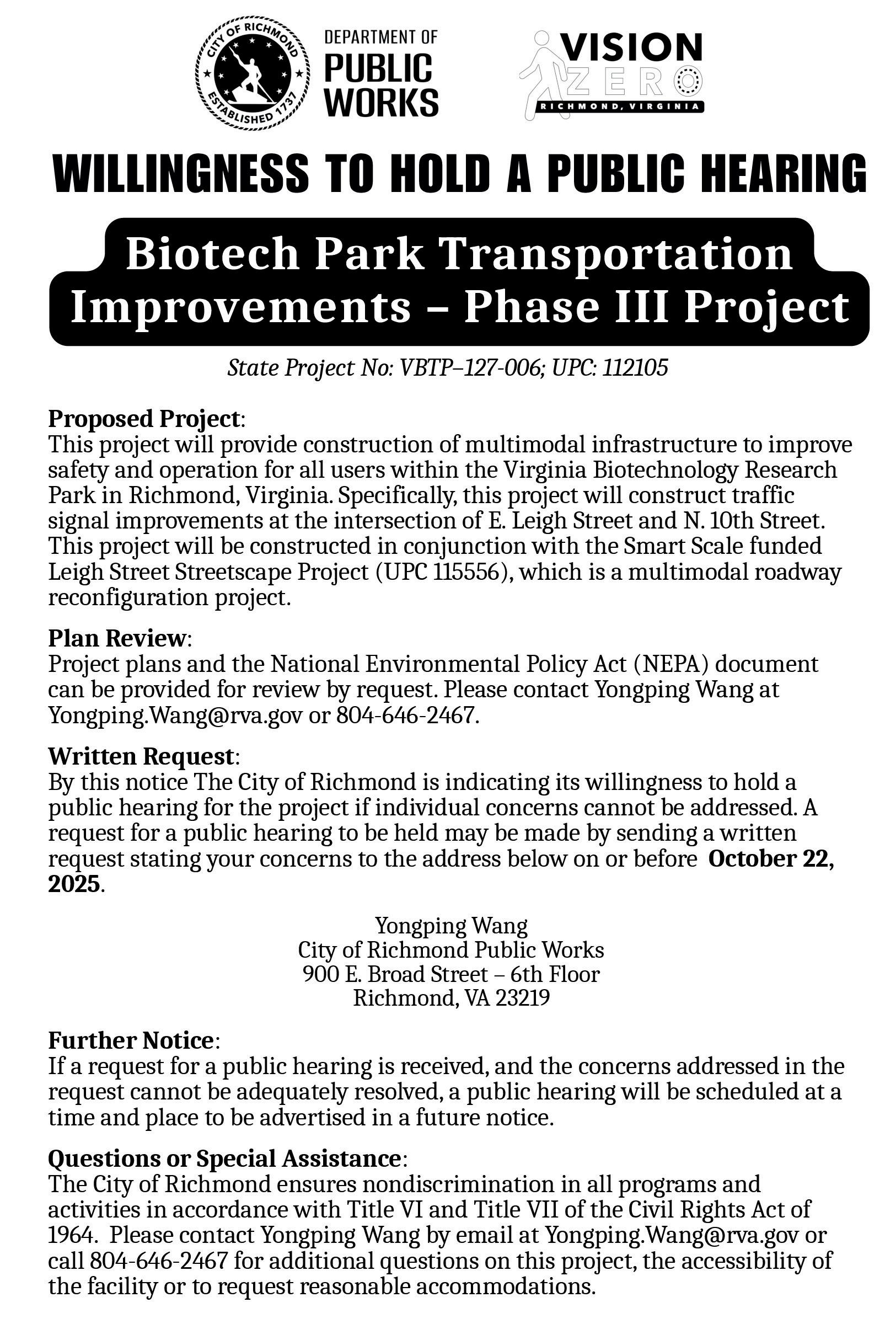
billions in AI technology, they must also reinvest in renewable energy, ensure communities have a real voice in how and where data centers are built, and make certain neighborhoods aren’t sacrificed in the name of profit.
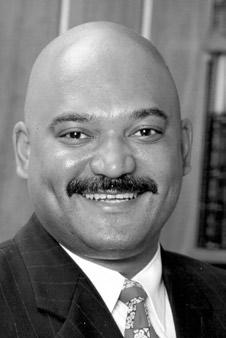
(Ref: Virginia Code § 58.1-3321)
The City of Richmond proposes to increase property tax levies.
1. Assessment Increase: Total assessed value of real property, excluding additional assessments due to new construction or improvements to property, exceeds last year’s total assessed value of real property by 5.74 percent.
2. Lowered Rate Necessary to Offset Increased Assessment: The tax rate which would levy the same amount of real estate tax as last year, when multiplied by the new total assessed value of real estate with the exclusions mentioned above, would be $1.146 per $100 of assessed value. This rate will be known as the “lowered tax rate.”
3. Effective Rate Increase: The City of Richmond proposes to adopt a tax rate of $1.20 per $100 of assessed value. The difference between the lowered tax rate and the proposed rate would be $0.054 per $100, or 5.0 percent. This difference will be known as the “effective tax rate increase.”
Individual property taxes may, however, increase at a percentage greater than or less than the above percentage.
4. Proposed Total Budget Increase: Based on the proposed real property tax rate and changes in other revenues, the total budget of the City of Richmond will exceed last year’s by 5.5 percent.
A public hearing on the increase will be held on October 14, 2025, at 6:00 p.m. in the Council Chamber, located at 900 East Broad Street, Richmond, Virginia 23219.
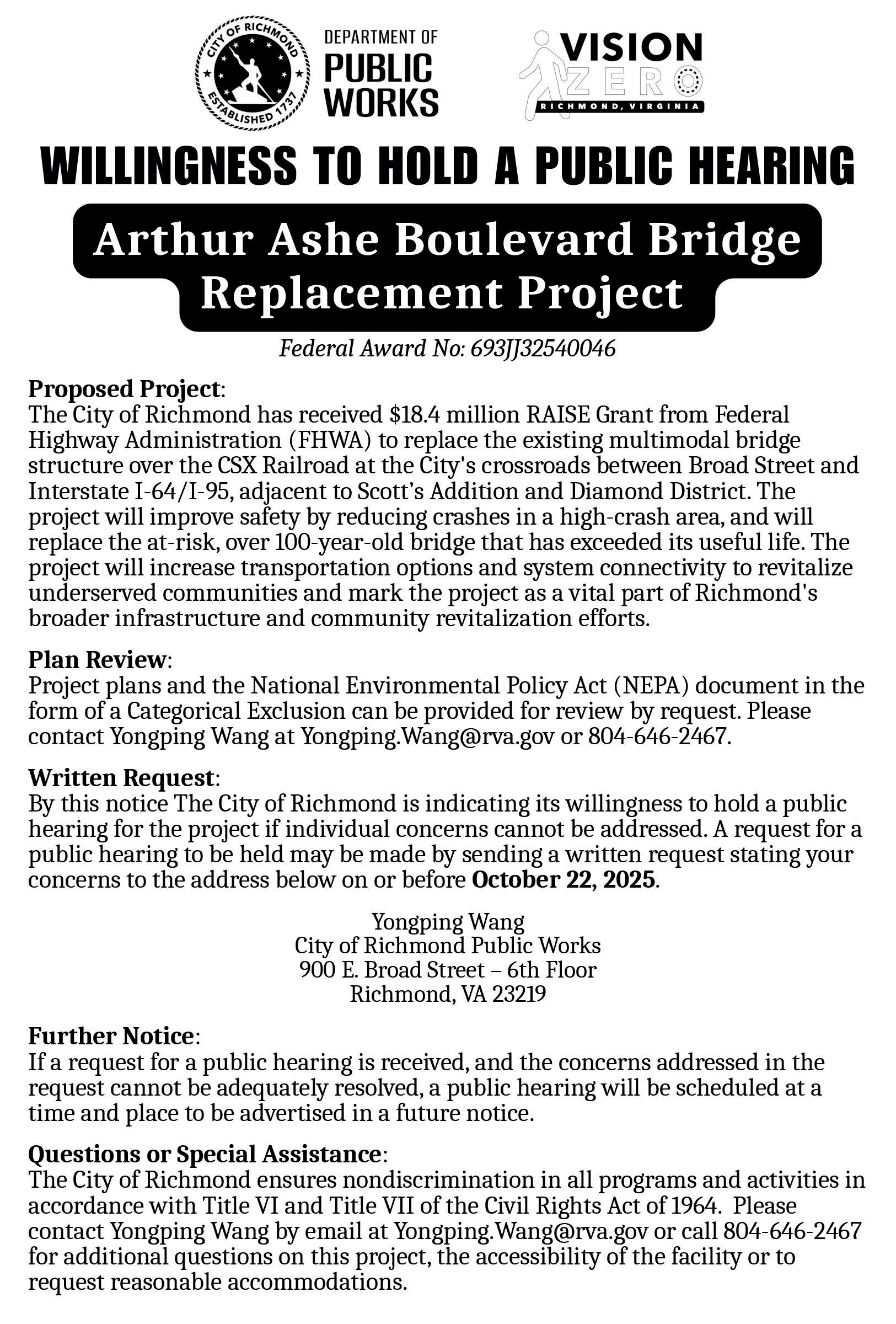
By George Copeland Jr.
Burudi Ali “Rudi” Johnson, a standout running back from Ettrick in Chesterfield County, built a lasting sports legacy both on and off the football field.
In September, he shared words of inspiration during a video accepting his induction into the Chesterfield County Sports Hall of Fame: “Dream big, shoot for the stars, stay focused, never give up.”
Johnson, born Oct. 1, 1979, was one of seven local athletes recognized for their careers, performances and contributions to the community. Days later, on Tuesday, Sept. 23, the 45-year-old’s death was reported in what authorities believe was a suicide. Despite the tragedy, those who knew him have celebrated his impact.
“His incredible career, talent and impact on the game and community made him a true legend, and it was a privilege to recognize his achievements,” Experience Chesterfield County said in a statement. “Our thoughts and prayers are with his family, friends, teammates and all who were inspired by his legacy. Rudi will always be remembered as part of Chesterfield’s sports history.”
Johnson’s football journey began at age 6 with the Chesterfield
Quarterback League’s Ettrick Trojans. He went on to play for Thomas Dale High School and the Thomas Dale Knights, where in 1998 he broke a nearly 40-year school record for points scored.
Johnson’s success continued in college, where he led Butler Community College to national championships in 1998 and 1999 and later rushed for more than 1,500 yards in a single season at Auburn University.
His running style set a rushing school record for Auburn and earned him the nickname the “Auburn Rambler.” He was named National Junior College Athletic Association Player of the Year in 1999 and was inducted into the NJCAA Hall of Fame in 2016.
“Always smiling, never complained,” former Auburn player and fellow teammate Cole Cubelic said in a social media post. “You would never know he was the star RB. Didn’t want the accolades or attention.”
Johnson was selected by the Cincinnati Bengals in the fourth round of the 2001 NFL draft, and his early professional career saw limited on-field action. When he did get called up, he made an impact, including a career-best performance in 2003 with 43 carries, 182 rushing yards and two touchdowns against the Houston Texans.
Johnson became a starter for the Bengals in 2003, setting a franchise rushing record with 1,454 yards and earning a Pro Bowl selection during his career.




Defensively, Virginia Union
recorded six sacks and forced two turnovers. Freshman cornerback Cortney Davis intercepted a pass, and junior linebacker Brandan Cammarasana forced a fumble. Shaw was limited to 265 yards of total offense.
Kicker Brady Myers made a 25-yard field goal and all eight extra-point attempts.
“I was pleased with our performance today against Shaw University,” Virginia Union head coach Alvin Parker said. “All phases of the game were clicking, and it was great to see so many guys get the opportunity to contribute. There are still areas we need to improve, but I truly appreciate the effort and dedication this team brings every day.”
Virginia Union visits WinstonSalem State at 1 p.m. Saturday.
Follow Richmond Free Press on social media.

@FreePressRVA




Before retiring from the NFL in 2008, Johnson began expanding his work in the community, establishing the Rudi Johnson Foundation in 2005. The organization promotes self-reliance and supports local communities through programs such as hot lunches for Chesterfield and Petersburg elementary schools, scholarship funds, and assistance for the elderly.
“Young Rudi boy, you’re gonna be missed,” former Bengals player and teammate Chad “Ochocinco” Johnson said on an episode of the “Nightcap” football podcast. “I love you.”
The Atlanta BEST Academy Polo Team made history at the eighth annual Atlanta Polo Party, not only becoming the first all-Black high school polo team to compete but also winning its debut match.
The team of Caleb Choice-Sanchez, Syncere Poole, Declan Fitzpatrick, Ryland Hammond, Mikel Banks and Quinn Ramsey edged Starr Creek Polo Club of Cumming, Georgia, 4-3 during the event, part of the 2025 Soul Symphony Weekend.
Formed two years ago through the Ride to the Olympics Foundation, the team gives students with no prior polo or riding experience a chance to learn the sport.
Celebrity fashion designer Miguel Wilson co-founded the program in partnership with 100 Black Men of Atlanta and BEST Academy to break down barriers to equestrian sports.
“We are making history, and these young men are blazing a trail that we hope others will follow,” Wilson said. “For too long, a socioeco-
nomic barrier has kept most Black people from participating in polo and other equestrian sports.” The foundation covers riding lessons, horse rentals, uniforms and equipment. Funds raised during Soul Symphony Weekend, including the Annual Atlanta Polo Party, support the program. Wilson, who helped launch Morehouse College’s polo team in 2019 — the first at a historically black college or university — said his goal now is to expand youth polo opportunities nationwide.
Robert Williams, principal of BEST Academy at the Thomas W. Dorch Jr. Institute, credited the program with helping students grow “as leaders on campus” while learning to care for horses and compete.
The three-day Soul Symphony Weekend also featured a black-tie gala, live fashion show and appearances by public officials, entertainers and community leaders. All proceeds benefit the Ride to the Olympics Foundation, which plans to create more youth polo teams in other cities. More information is available at ridetotheolympics.org.
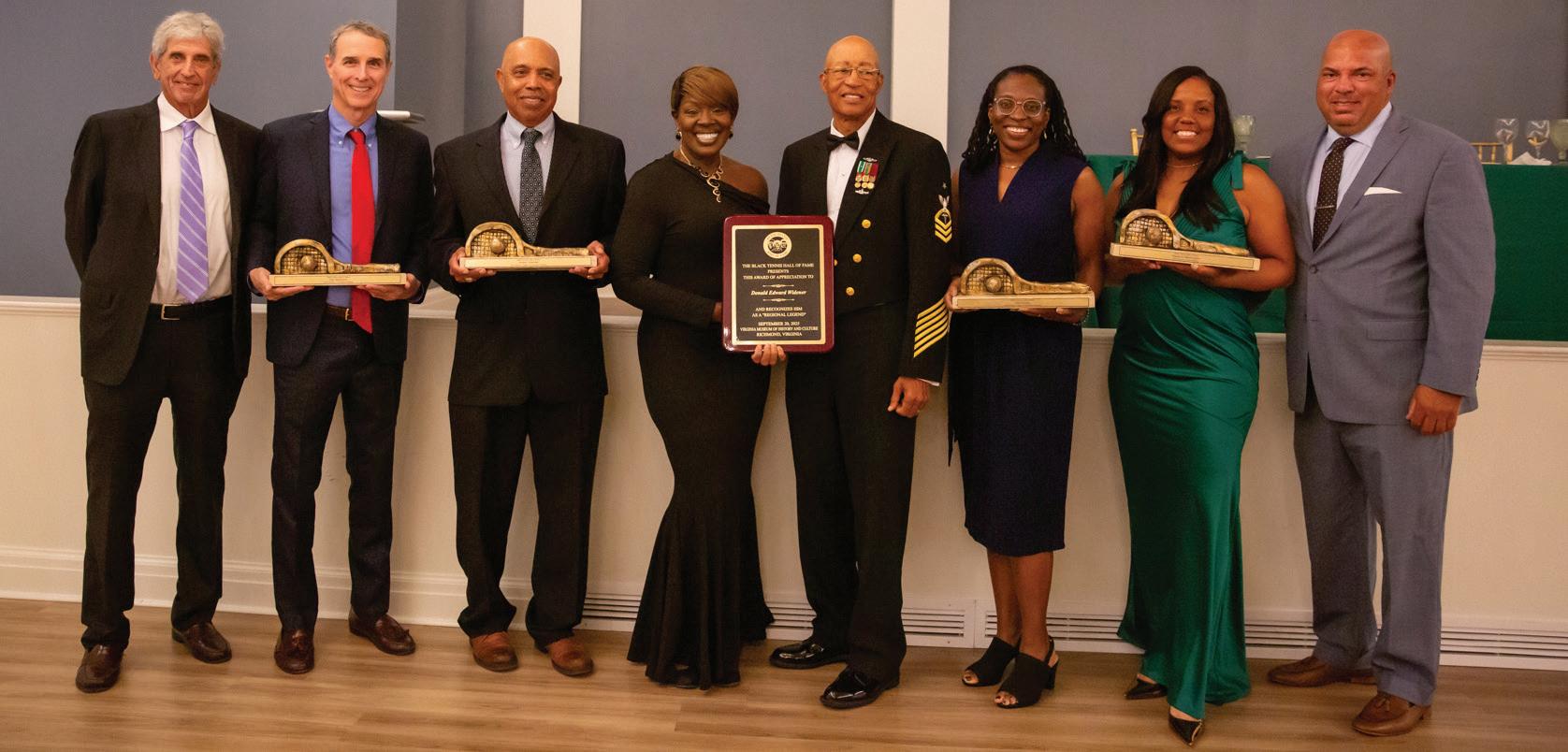

Free Press staff report
Virginia State volleyball needed just three sets to dispatch Lincoln (Pa.) on Monday, rolling to a 25-9, 25-9, 25-11 win at the Multipurpose Center. The Trojans controlled the match from the opening serve, improving their record to 3-7 overall and 2-0 in CIAA play. Junior outside hitter Gracie Darville led the way with eight kills and a .727 hitting percentage, providing the offensive spark. On the defensive side, libero Adrianna Bacon tallied 10 digs, keeping Lincoln’s attackers in check. Setter Peyton Reese also had a strong outing, finishing with 13 assists to pace the Trojans’ attack. Virginia State set the tone in the opening frame, taking an early 3-2 lead and never looking back. With four service aces and steady hitting, the Trojans built their advantage to 16 points
before closing the set 25-9.
The second set mirrored the first, as the Trojans again jumped out early and stayed in command.
Virginia State committed only two attack errors in the frame, while piling up 15 kills. Daisy Pentorn highlighted the set with three aces, helping the Trojans secure another 25-9 win.
By the third set, the outcome was all but decided. Virginia State scored first, never trailed, and steadily pulled away. The Trojans closed on their largest margin of the night — a 14-point edge — to seal the 25-11 victory and complete the sweep.
Virginia State finished the night with 35 kills as a team while holding Lincoln to just 14. The Trojans also racked up eight service aces compared to the Lions’ three.
Virginia State will look to keep its conference momentum going Friday, when it faces Claflin University at 10 a.m.
With a passion for youth development and a love for the arts, Tanesha Powell has stepped into the role of executive director at ART 180, the Richmond nonprofit that has empowered young creators for nearly 30 years.
“I am deeply honored to join ART 180 in its next chapter, and I’m excited to collaborate with our community to empower young voices and nurture the creative spirit of Richmond,” Powell said.
Although Powell doesn’t see herself as a traditional artist, she has a deep appreciation for the arts. Music, in particular, is her favorite form of expression. She played alto sax in middle school, high school and college bands, and her father, a DJ, inspired her love of music by introducing her to a wide range of musical genres.
“I’m an appreciator of art,” Powell said. “I use music and crafting as a form of selfexpression.”
Her love of crafting is a parttime activity that allows her to unwind and relax. She spends much of her free time finding discarded items and transforming them into something new that can be put to use.
Powell’s adventurous spirit has shaped her perspective. She grew up in Mount Zion, a historic Black community in Montgomery County, Maryland, and has lived in several places, including a year in Dubai, and she and her daughter have traveled extensively.
During their time in Dubai, Powell and her daughter traveled to Oman, France, England and Iceland, her daughter’s favorite.
Powell and her daughter also share a love of camping, which they discovered while Powell
worked at Blue Sky Fund, a nonprofit organization focused on youth development.
With experience in organizational leadership, a deep appreciation for the arts and a spirit of adventure, Powell is poised to guide ART 180. In addition to her credentials, she brings a commitment to empowering young creators.
“I believe in the power of art,” Powell said. “ART 180 inspires and elevates the next generation of creators.”
Where do you live?
Eastern Henrico.
What’s your educational background?
I hold a bachelor’s in psychology and a master’s in elementary education from the University of Pennsylvania.
Tell us about your family.
Married with two kids: a bonus son who’s 20 and a 16-year-old daughter.
What is ART 180?
We are a community-centered arts space, gallery and creative collective committed to meeting artists at every stage of their creative development. We provide free arts programming for young people, host exhibitions and bring public art events, workshops for adult and youth artists and installations to Richmond.
Where is ART 180 located?
We’re in Jackson Ward on Marshall Street.
What is ART 180’s mission?
We are a collective of creative people cultivating the tools and strength of spirit to meet every moment, every trauma and every triumph head-on.
Who founded ART 180?
Marlene Paul and Kathleen Lane co-founded the nonprofit ART 180 in 1997. They en-
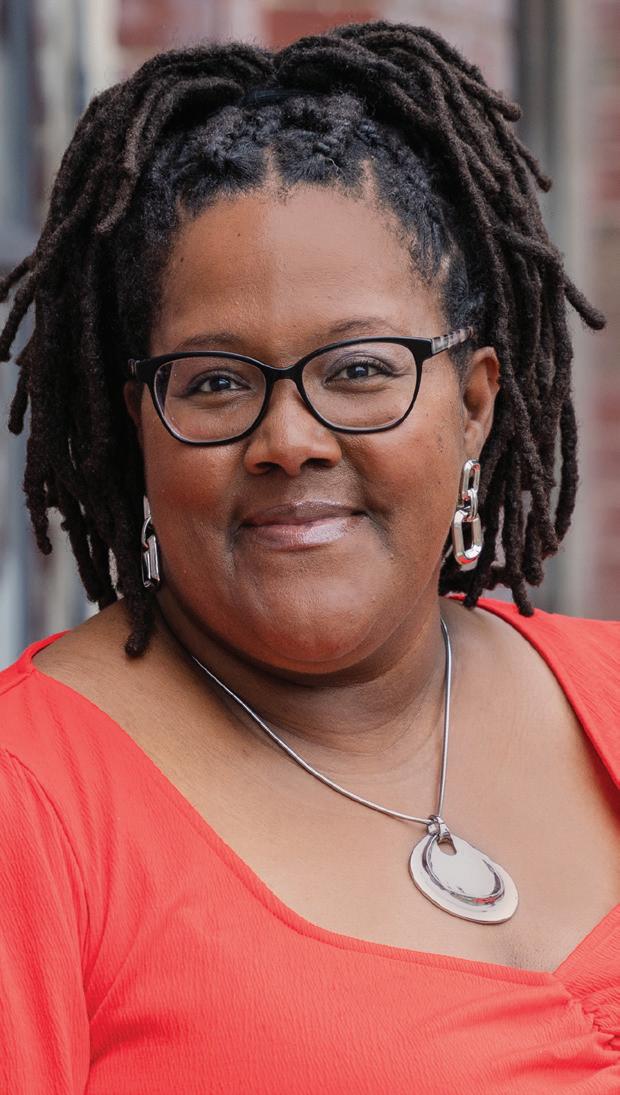
visioned an organization that would inspire creativity in young people who might not otherwise have access to creative outlets.
What programs are offered?
We provide free arts programming for young people, host exhibitions and bring public art events and installations to Richmond. We work with community-based after-school programs, like NextUp and the Boys & Girls Clubs as well as Richmond Public Schools to offer a variety of creative outlets in a wide range of media, including things like DJing and podcasting in addition to traditional visual art. Share some examples of how ART 180 makes a difference.
We provide a safe space that enables students to be seen and heard within a community of peers. Kids are finding their niche and building relationships with peers with similar interests.
I personally saw a usually shy kid take a DJing class and come out of his shell, and his parents were so excited that they gave him DJing equipment.
What is your vision for ART 180?
I want to ensure that ART 180 continues to thrive as a communitycentered arts space, gallery, and creative hub — offering transformative workshops, exhibitions, residencies and art experiences for young people, their families and working artists across the city.
What are the biggest challenges facing ART 180?
The current federal and local funding cuts for nonprofits will have an impact on the arts community. Transportation for the youths is an ongoing challenge. As it starts to get darker, the kids have to take public transit.
How is ART 180 funded?
We have a wide variety — individual donors, foundation and corporate grants and fees from special events and merchandise sales.
Who are some of your partners?
For programming, NextUp, the Boys & Girls Clubs, RPS, the Institute for Contemporary Art at Virginia Commonwealth University and The Branch Museum of Design. We also partner with other arts programs for fundraising. Are there volunteer op-
portunities?
Yes, periodically. We are seeking volunteers to assist with resetting the gallery for shows and major events.
Do you have any upcoming events?
On Friday, Oct. 3, we are opening a show called “Role Reversals,” where staff, board members and teachers will display a variety of media of art. It’s a free event.
How do you start the day?
With a deep breath and quiet thank you.
Who is your dream dinner party guest?
All of my grandparents and great-grandparents. I have

many questions about my family history that I would like to ask them.
What is a quote that inspires you?
“This too shall pass,” because it reminds me that trouble won’t last always and that if I just keep pressing forward, things will change.
What is a book that has influenced you?
“God Don’t Like Ugly,” by Mary Monroe.
What are you currently reading?
“Lovely One: A Memoir,” by Ketanji Brown Jackson
What are the top three on your musical playlist?
“Jireh” by Elevation Worship and Maverick City Music; the cover of Adele’s “Hello” by Backyard Bands; and “There’s Hope” by India.Arie.
What’s next for you?
I’m excited about the strategic planning we’ll be doing for the next three to five years.





















Free Press staff report
The Institute for Contemporary Art at Virginia Commonwealth University is opening its fall season with an expanded schedule of artist talks, performances, film screenings and a new chef residency.
This season brings back First Fridays at the Markel Center along with Sunday brunches led by the ICA’s first chef-inresidence, Santana Hem of the Khmer-inspired culinary project Hem and Her. Hem’s series of counter-service brunches at the Abby Moore Cafe will run into early 2026 and conclude with a ticketed dinner in March.
Artists Federico Cuatlacuatl and Lily Cox-Richard will headline early events. Cuatlacuatl will discuss his multimedia work shaped by his experience as part of a displaced community in Mexico, while Cox-Richard will speak about her exhibition “Disquiet in the Sand,” which uses colorful glass scrying mirrors cast from

the fall season of the ICA at VCU.
human-altered landscapes.
Cox-Richard’s talk coincides with First Friday, which will feature extended gallery hours, food trucks and music.
French-Caribbean artist Julien Creuzet and Brazilian choreographer Ana Pi will perform “Your source at the feet of the green peaks,” a one-time embodied iteration of Creuzet’s exhibition at the ICA. Hard Light Cinema will complement the performance with a series of screenings in October and No-
vember exploring Black Atlantic aesthetics. Community Podcast Day returns in November with free presentations from producers for people interested in launching podcasts. The following evening will feature “In The Dark Presents: Perspectives,” an audio performance highlighting memory, identity, imagination and language. Later that month, the ICA will partner with the Shockoe Institute for an evening of music tied to the forthcoming “Expanding Freedom” exhibit at Main Street Station.
Additional fall programming includes independent horror films, business workshops for creatives, author talks and community meetups. All exhibitions and events are free unless otherwise noted.The ICA is open from 10 a.m. to 5 p.m. Tuesdays through Sundays. More information is available at icavcu.org



Above, Godfrey’s Angels deliver an energetic performance. Left, Melanin Monroe commands the main stage at Virginia PrideFest. Monroe also co-hosted the evening’s performances with Nellyfresh.
Virginia PrideFest 2025 drew crowds to Midtown Green on West Leigh Street on Saturday, Sept. 27, concluding a week of events organized by VA Pride. The festival featured all-day performances on two stages, along with vendors offering food and drinks.
Left, Kaila Robinson and Angelica Jackson enjoy a performance at the event by local cover band What’s Our Age Again? The festival featured all-day performances on two stages.

DiamonDs Watches

JeW elry repairs
19 east Broad street richmond, Virginia 23219 (804) 648-1044 www.wallerjewelry.com


State of fun
The State Fair of Virginia returned to The Meadow Event Park in Doswell last weekend, drawing crowds from across the Commonwealth and beyond. Fairgoers packed the midway, sampling food from vendors, testing their luck at carnival games and taking in the rides. The fair, which opened Sept. 26, continues through Oct. 5.

The Library of Virginia will host a free virtual talk at noon Wednesday, Oct. 8, featuring Donovan Schaefer, a Virginia Humanities fellow, on his research project “Nationalism & Cosmopolitanism in the Creation of Richmond’s Confederate Monuments.” Registration is required at https://lva-virginia.libcal.com
Schaefer, an associate professor of religious studies at the University of Pennsylvania, spent time earlier this year at the Library of Virginia studying records related to Confederate commemoration in Virginia. His work combines archival research, public
storytelling and a digital archive highlighting Black press responses to Confederate symbols, known as the “False Image of History” project. The talk will explore how public monuments influence democratic society and shape who feels safe in shared spaces. Schaefer will focus on the library’s holdings, particularly the records of the Lee Monument Association, to show how white Southerners after Reconstruction used global art networks to assert their vision of the nation. This approach culminated in the selection of French sculptor Antonin Mercié to create the Robert E. Lee statue, installed on what became Monument Avenue in 1890.
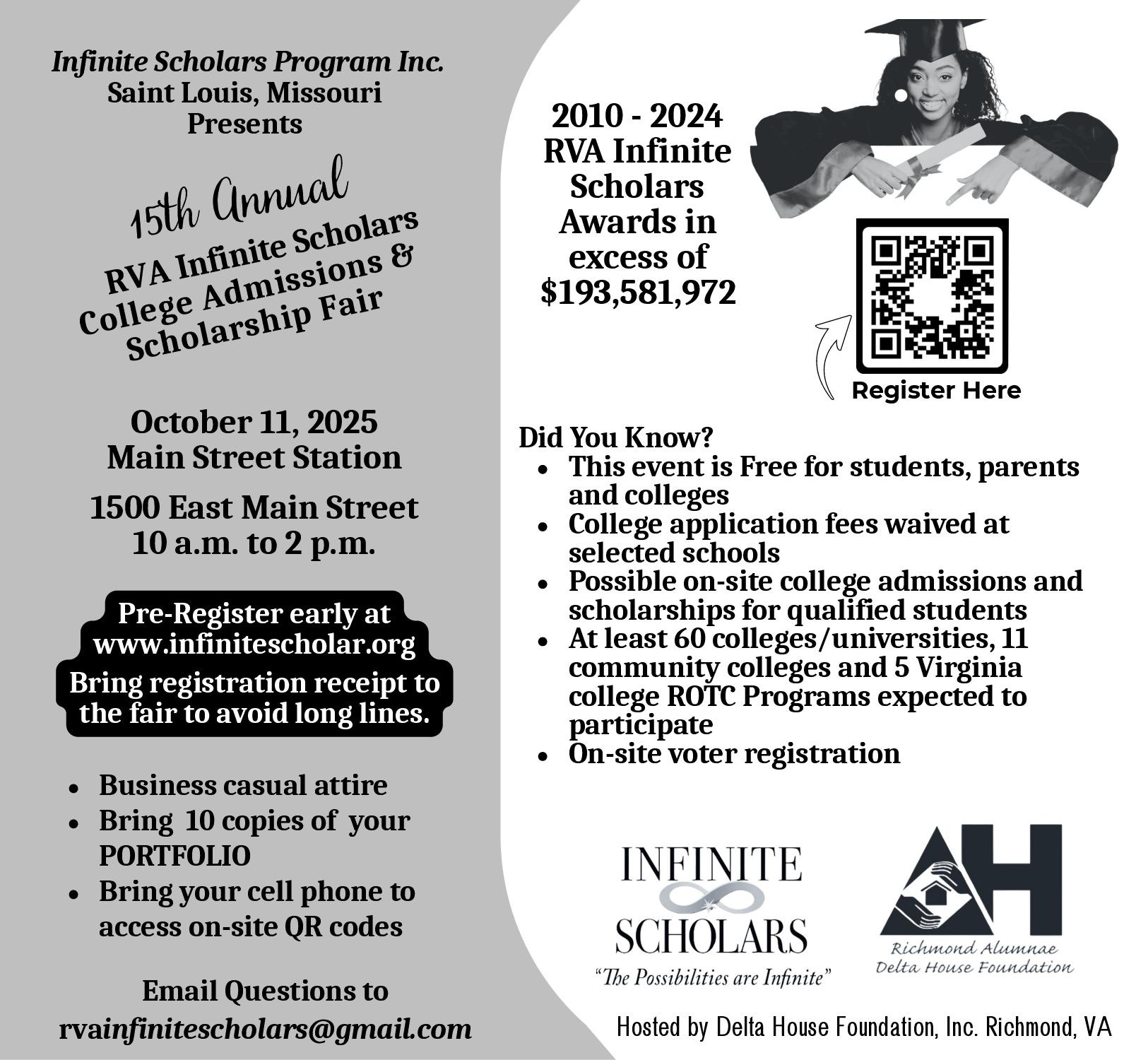

Tues., Oct. 28 | 6:00–7:30 p.m.
Library of Virginia Lecture Hall | Free
A book signing will follow the talk. Registration is required: lva-virginia.libcal.com/event/15187764 MICHAEL W. TWITTY
Free Press staff report
The Catholic Diocese of Richmond will host its inaugural “Catholic Fest” on Saturday, Oct. 11, at The Diamond, offering a day of free activities for families and the broader community.
The festival runs from 10 a.m. to 9 p.m. and will feature vendors, exhibits, food trucks, local performances and a Kids’ Zone with inflatables, a petting zoo and a magician. The afternoon program includes a Mass in the stadium and inspirational guest speakers, while evening concerts will feature national performers Scythian, The Young Escape and Marie Miller.
Bishop Barry C. Knestout said Catholic Fest is intended to bring people together and share a message of hope.
“Whenever large numbers of Catholics gather, there is a natural, heartfelt proclamation of our faith,” Knestout said. “And even more than that, there is a sense of goodwill toward

The Young Escape, a sibling pop band from California whose debut single, “Good Life,” topped Billboard’s Christian Airplay chart, will perform during “Catholic Fest” on Oct. 11 at The Diamond.
all those around us and a joy in being part of the overall community.”
The festival coincides with the Catholic Church’s 2025 Jubilee Year of Hope. Organizers say Catholic Fest aims to provide a positive, uplifting atmosphere at a time the world is facing divisive and painful issues.
No registration is required, and admission is free. Food and drinks will be available. For more information, visit catholicfest.richmonddiocese. org.


Free Press staff report
Bishop Liston Page Jr., a Virginia Union University graduate who has preached nationally and abroad, will return to Richmond next week to lead the fall revival at Second Baptist Church (West End), 1400 Idlewood Ave.
The revival is set for Monday and Tuesday at 6:30 p.m. nightly.
The Rev. Dr. James Henry Harris is senior pastor.
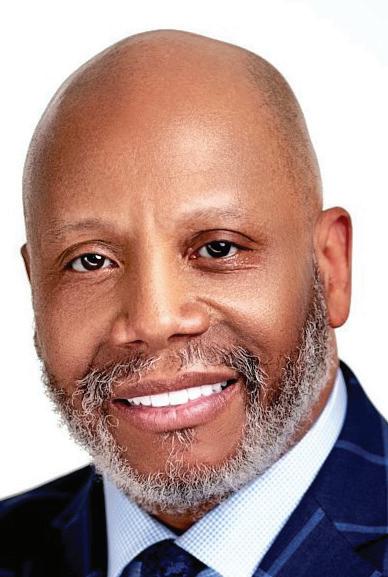
Page is the first vice presiding bishop of Greater Highway Deliverance Ministries Inc., where he provides guidance to 30 pastors. He also serves as senior pastor of The Highway
Church in Paterson, New Jersey, and is the author of “How to Survive Your Storm” and “Distractions from Your Destiny.” He holds Doctor of Ministry and Master of Sacred Theology degrees from Drew University. Each evening will feature praise music and spiritual lectures led by the Rev. Dr. Alton Hart Jr., a certified spiritual director, physician and associate minister and worship leader at Second Baptist.
“We are fortunate to have Bishop Page as our revival preacher,” Harris said in a statement. “We invite everyone to a much-needed revival experience for the two nights in October.”
Free Press staff report
Greater Mt. Moriah Baptist Church joined with city leaders and the Richmond Police Department to host “Falling for the Culture: A Festival of Unity, Peace, and Hope” on Sunday along the Jackson Ward and Gilpin Court corridor.
The church partnered with the police department’s Community Youth and Intervention Services Unit and the city’s Office of Gun Violence Prevention


to present the event, which ran from noon to 4 p.m.
The festival drew residents, families and community partners and offered live entertainment, vendors, free food, youth activities and voter registration. Performances by local artists, a community praise break, games, a basketball trailer and a featured appearance by Virginia Union University’s band were among the day’s highlights.
Organizers said the celebration was meant to strengthen trust among residents, promote peace and dialogue, showcase community talent, and provide safe, uplifting spaces for families and youth.




